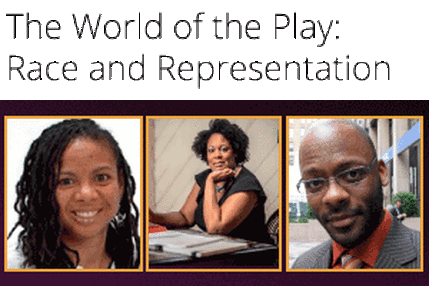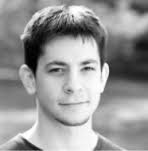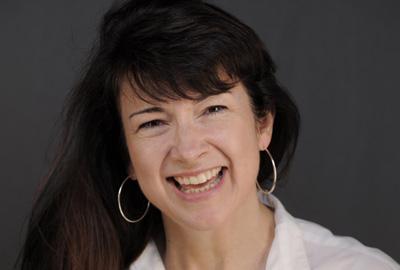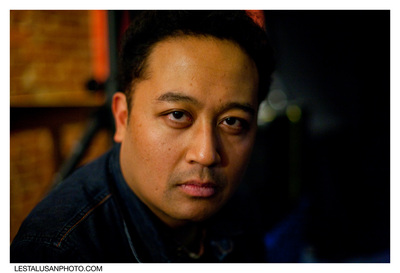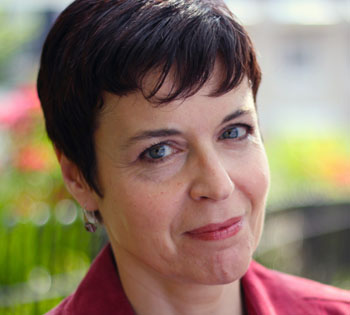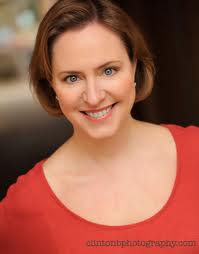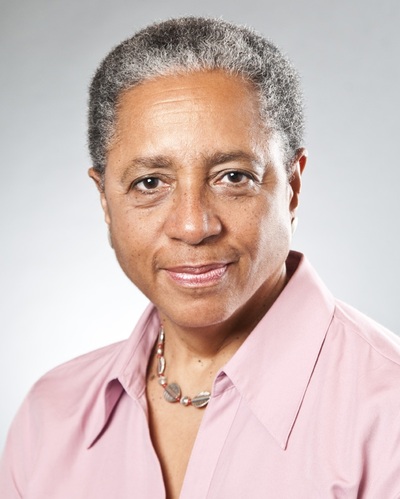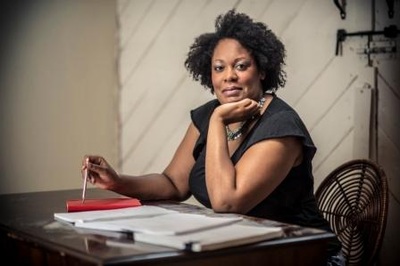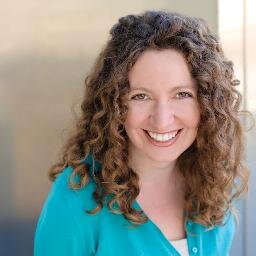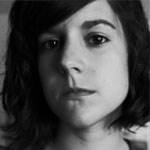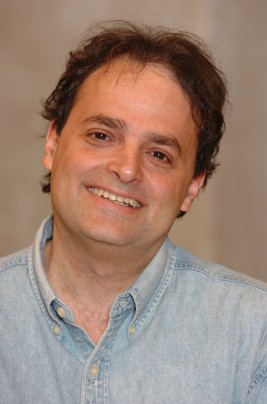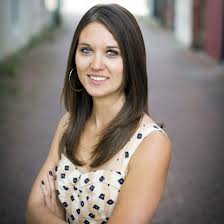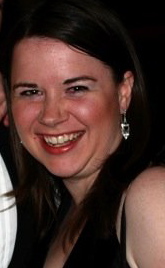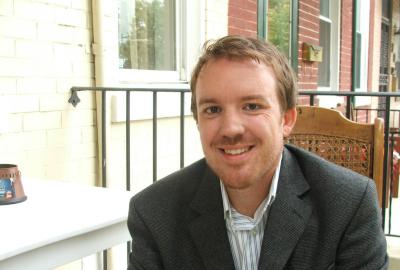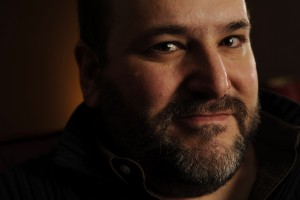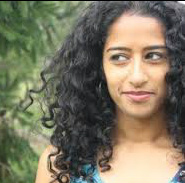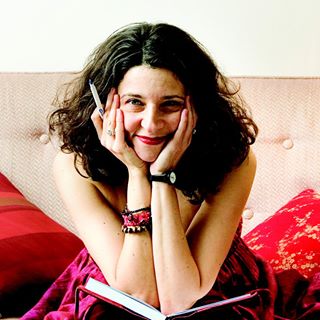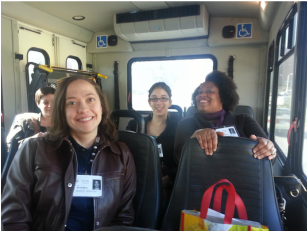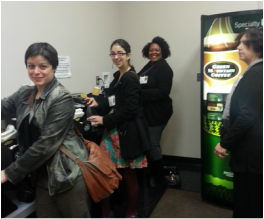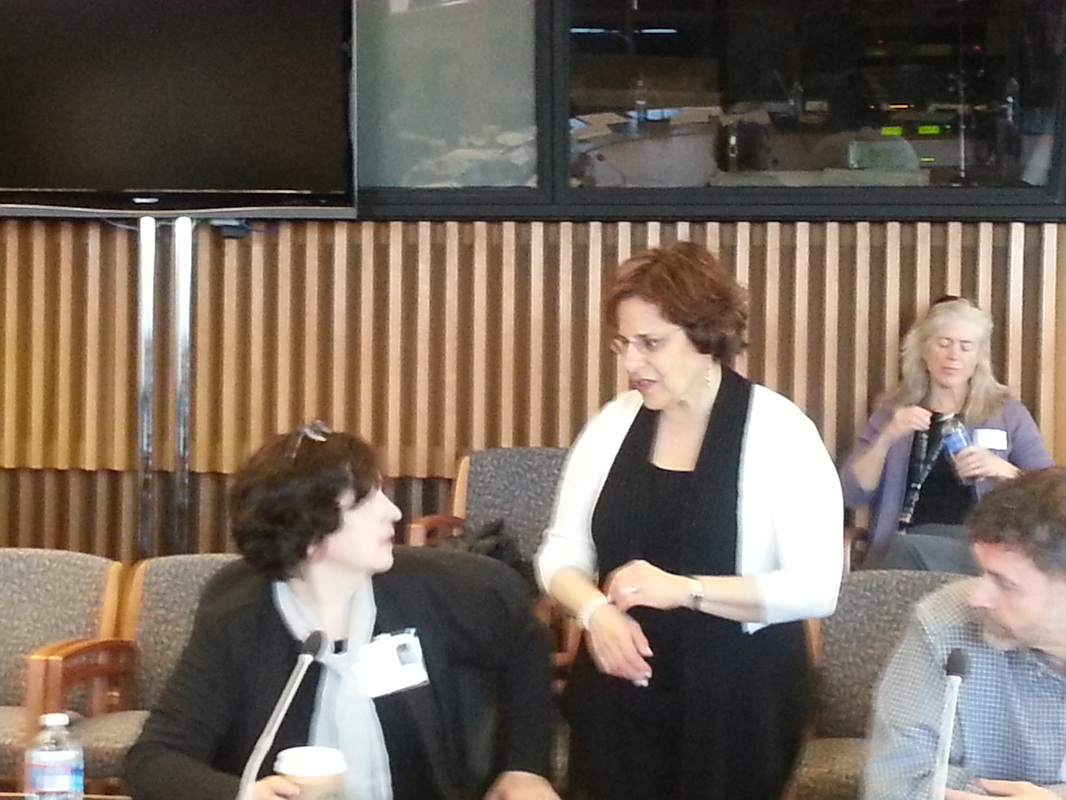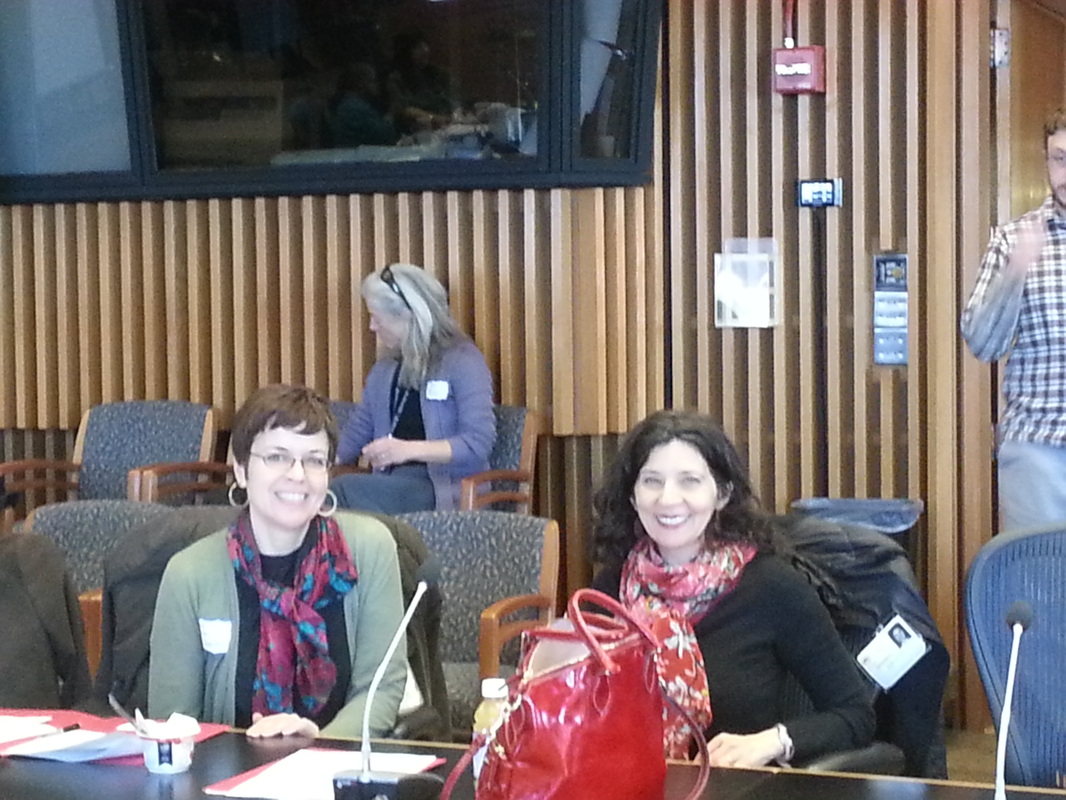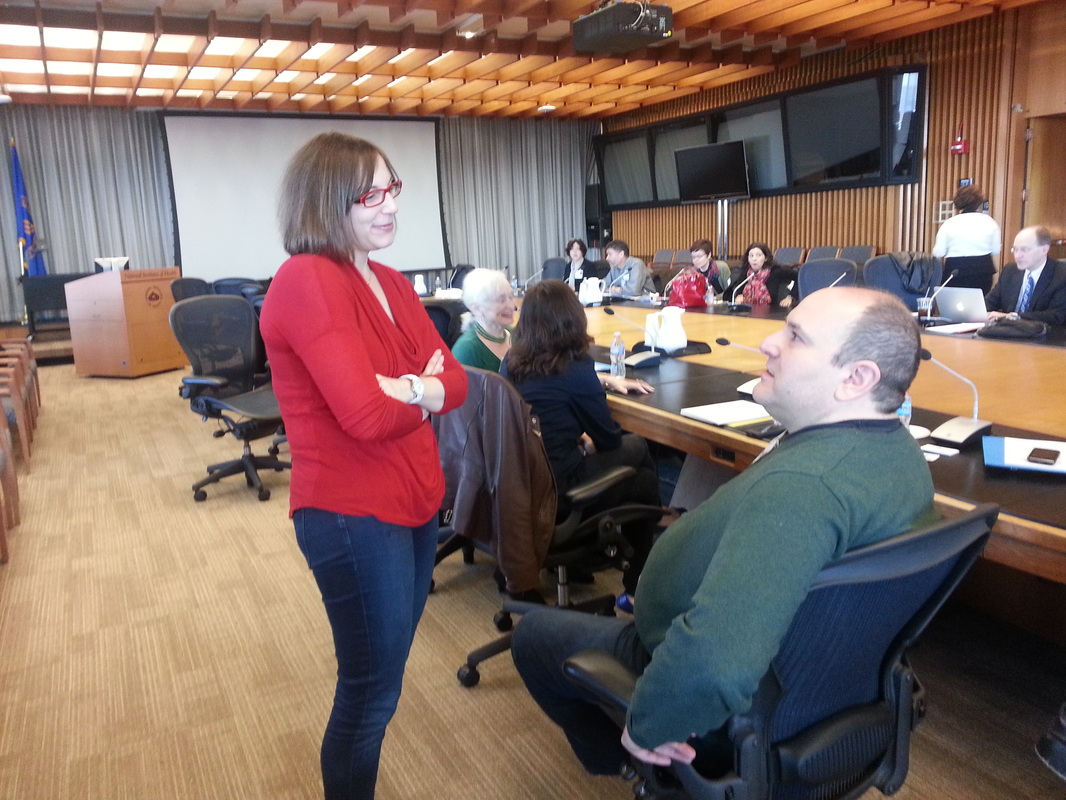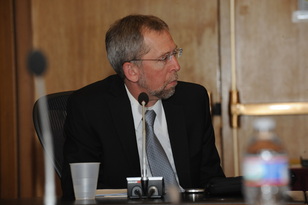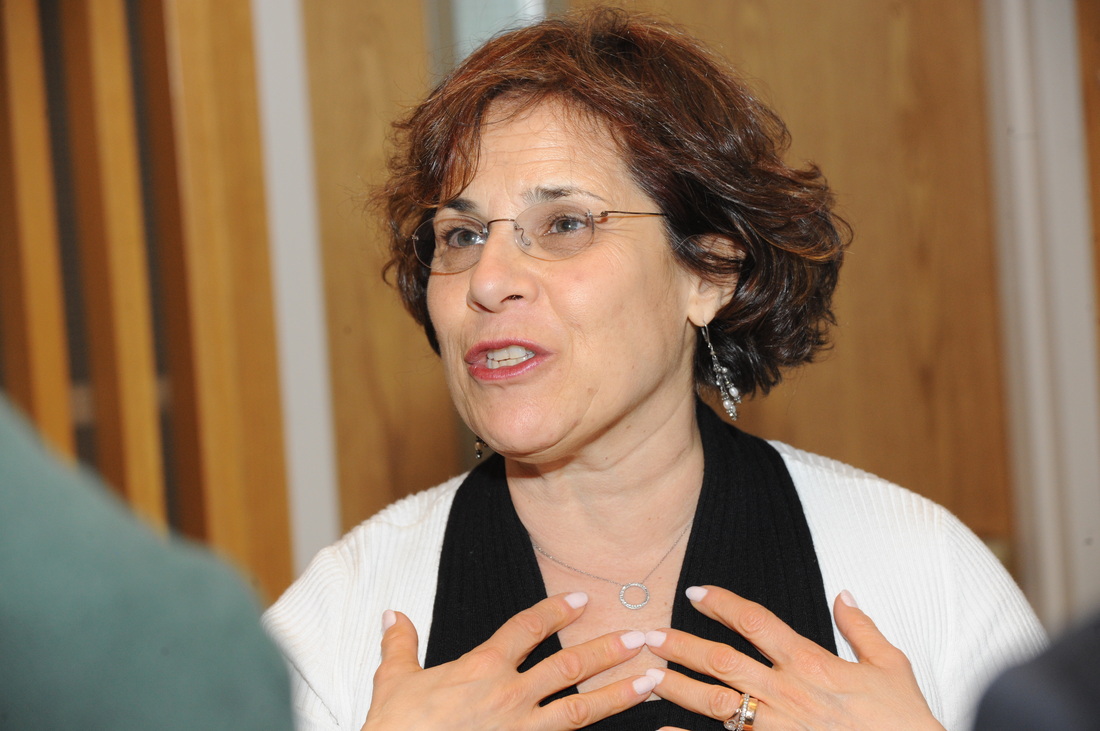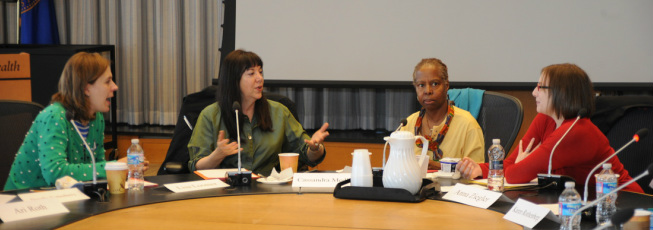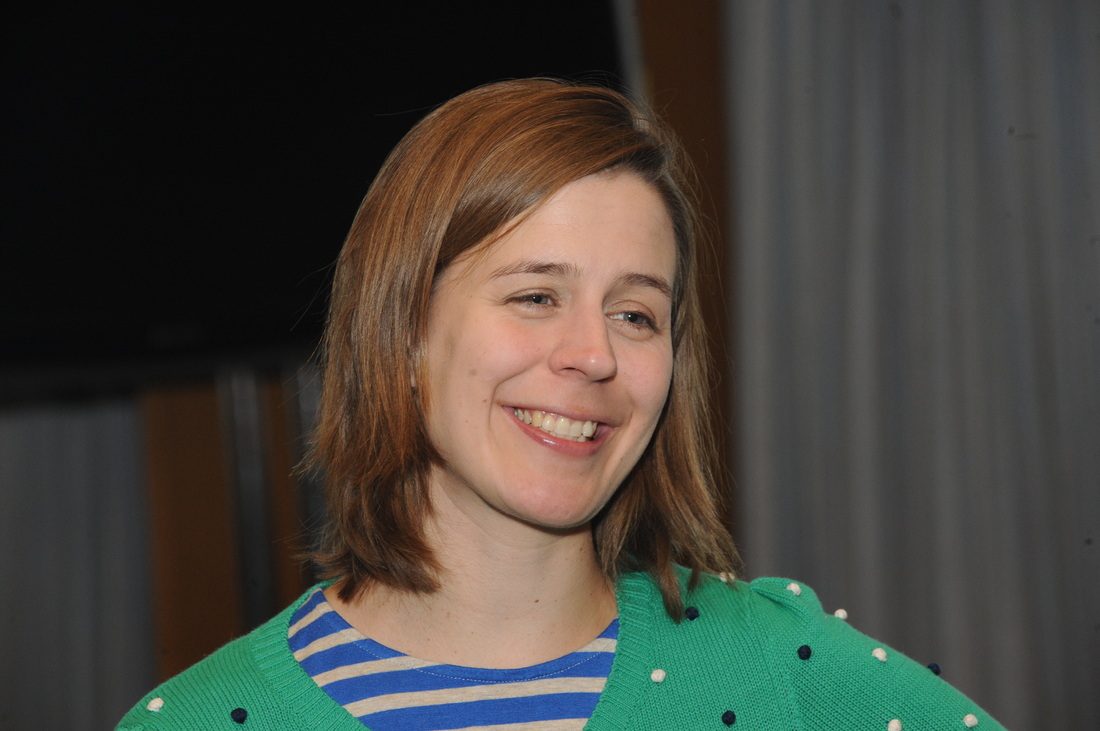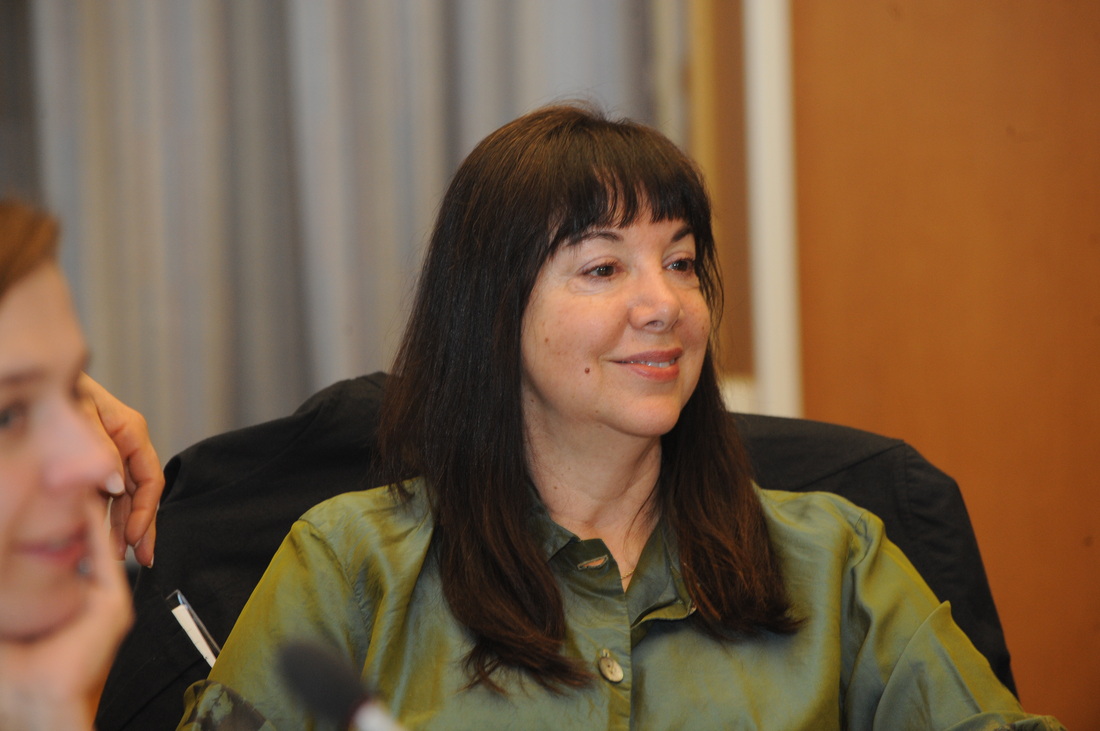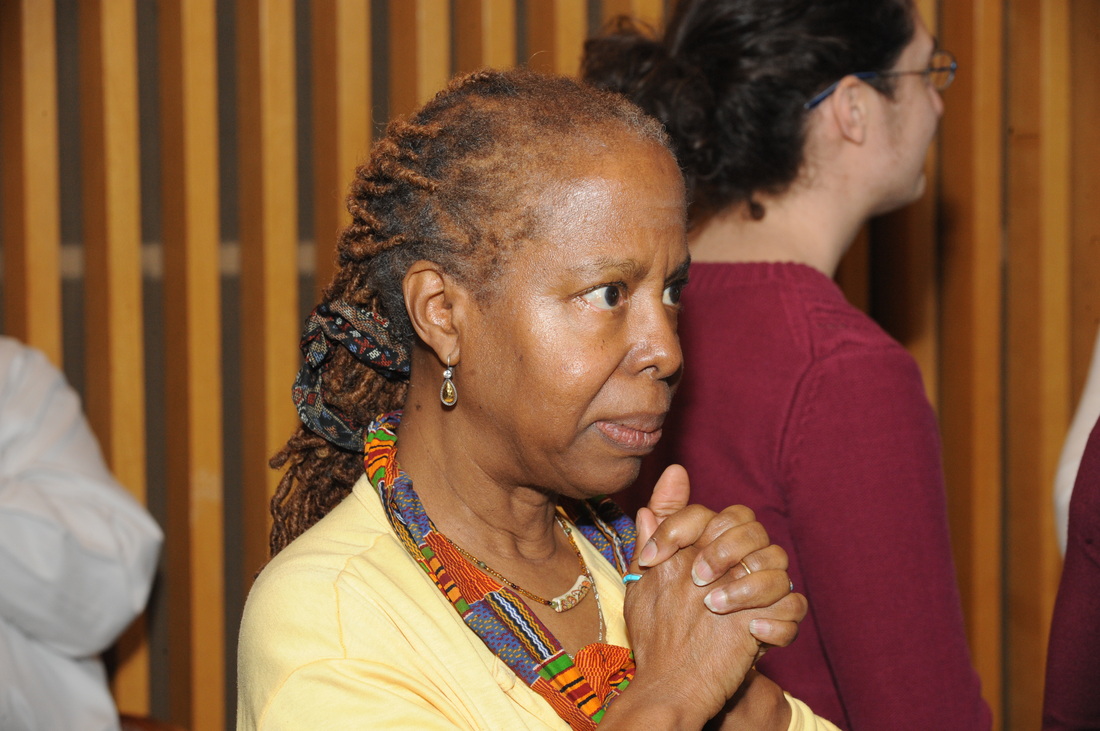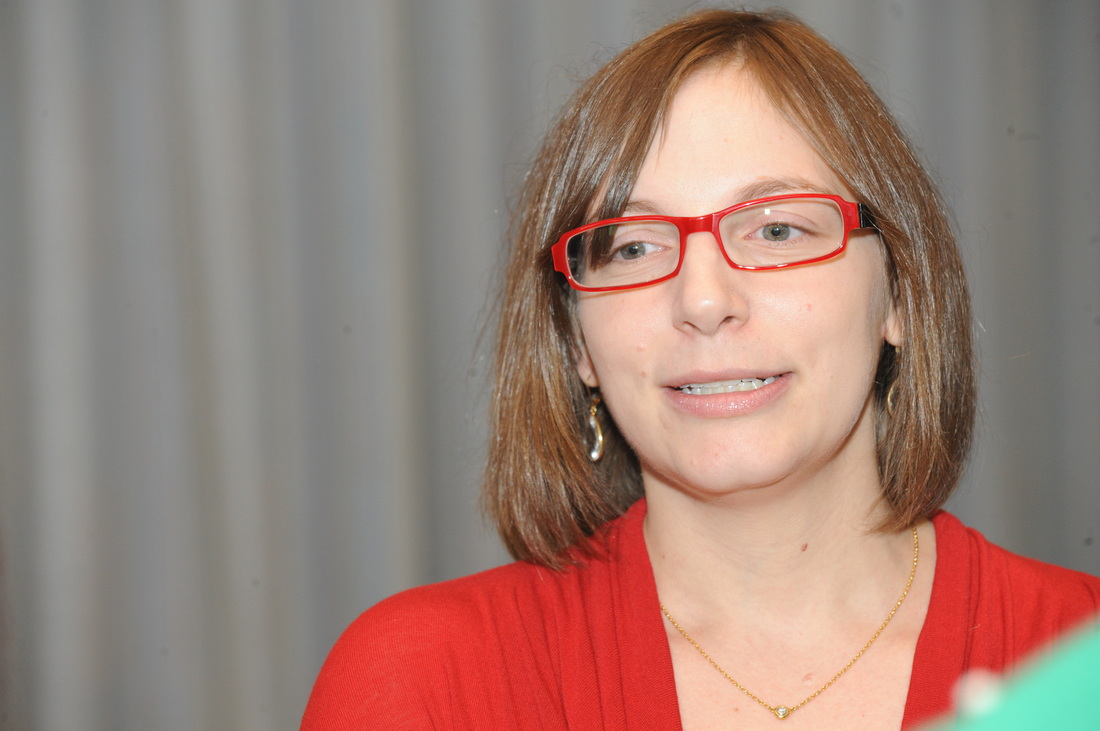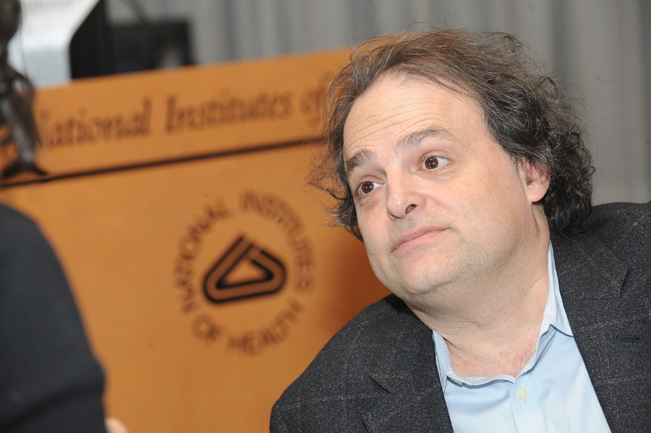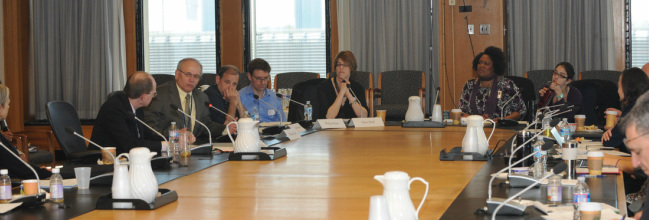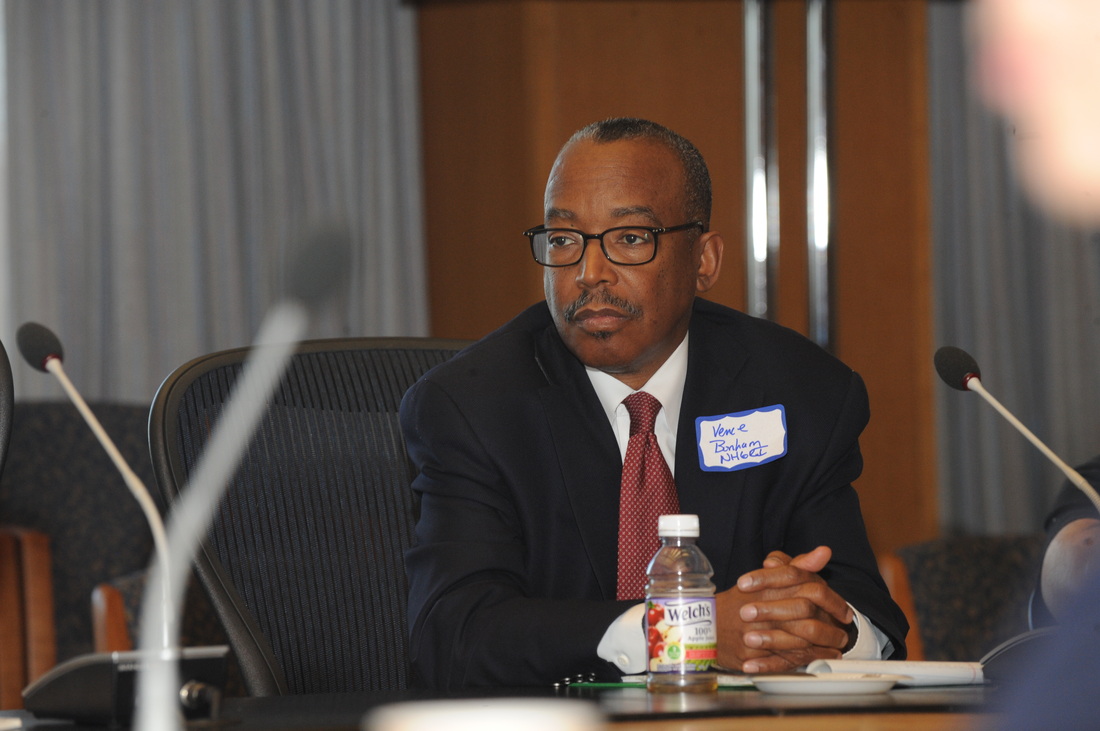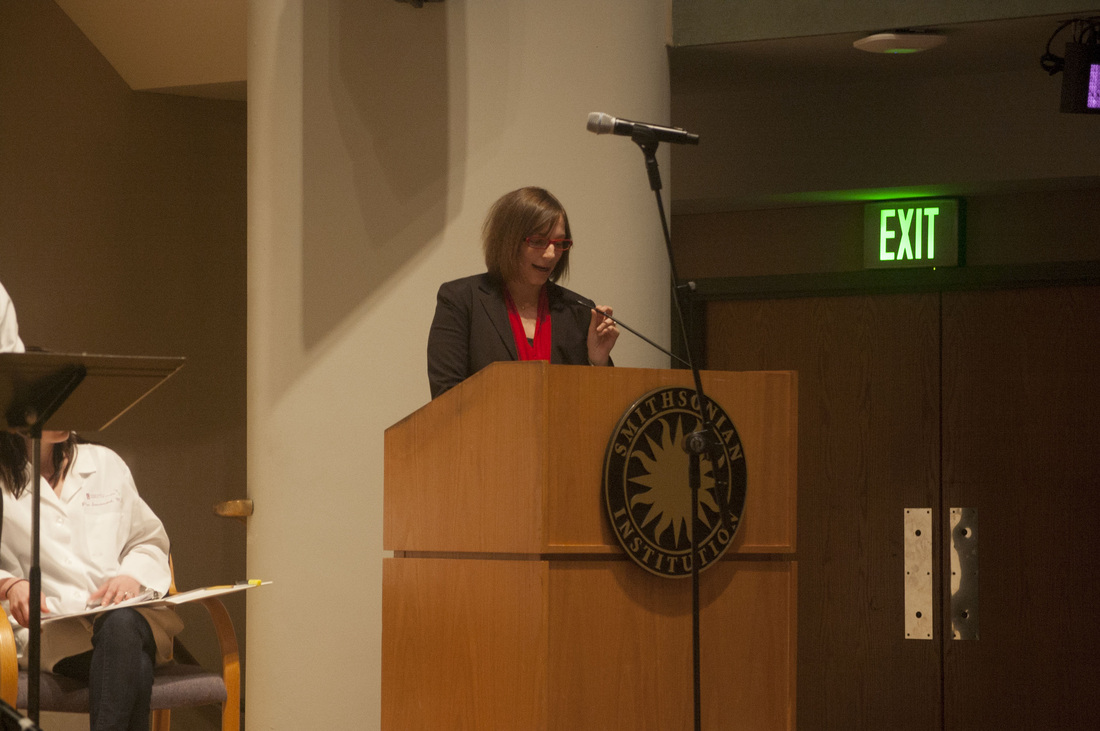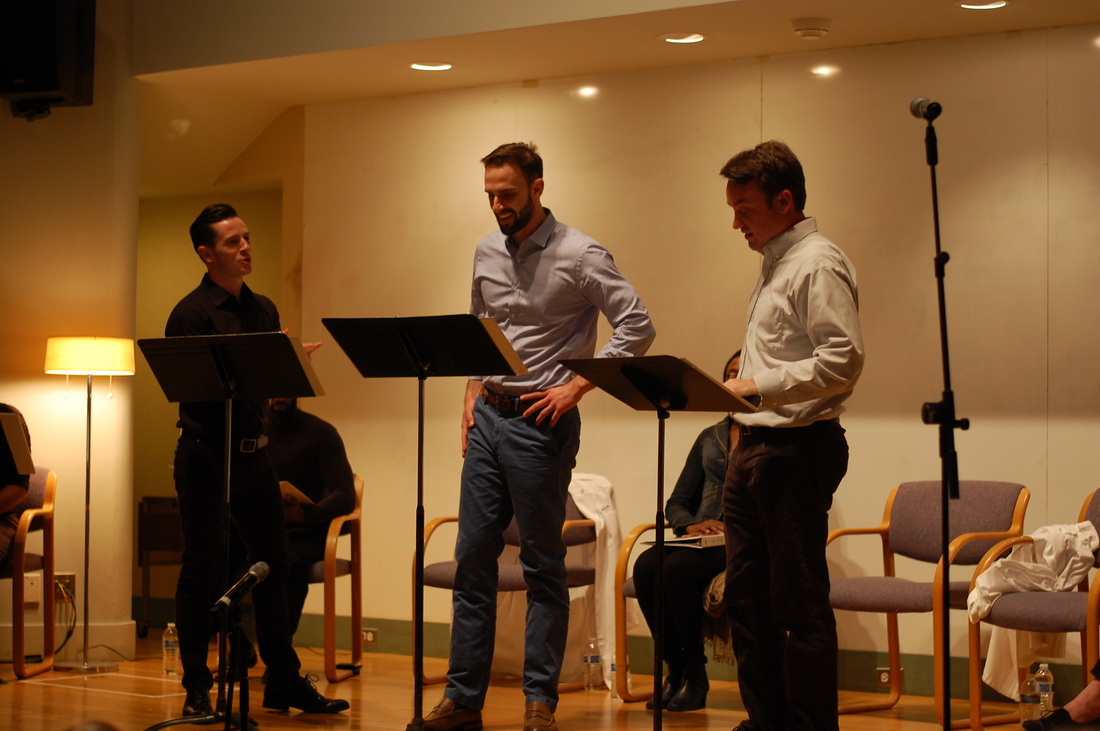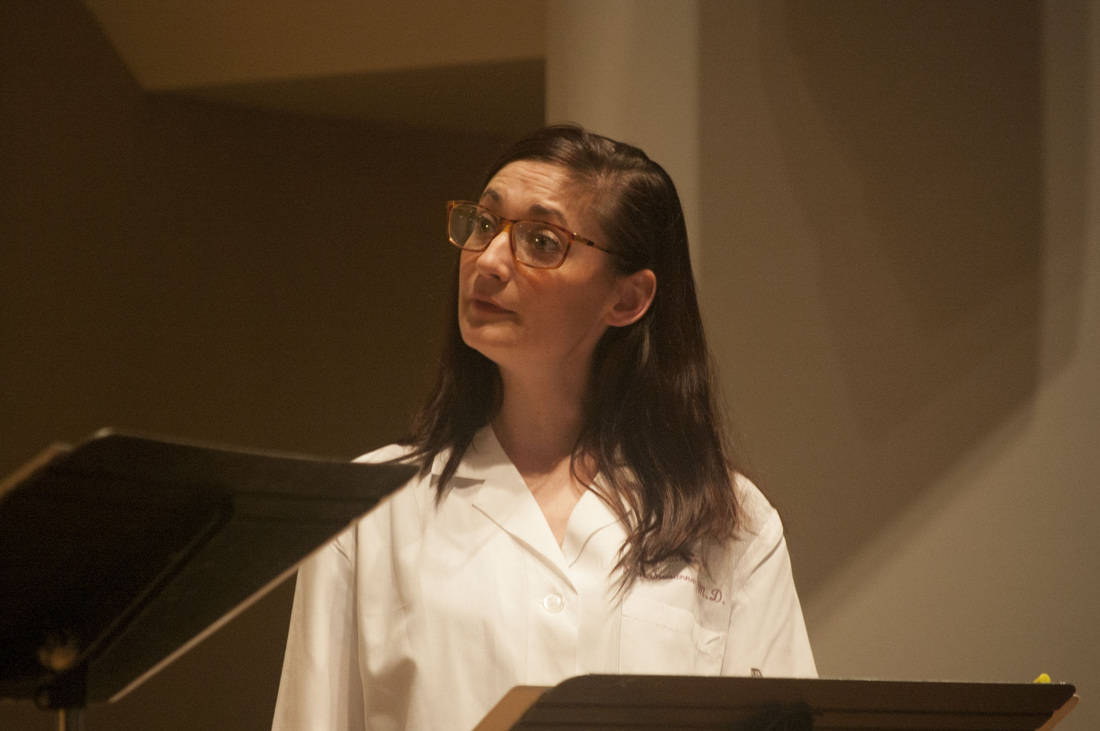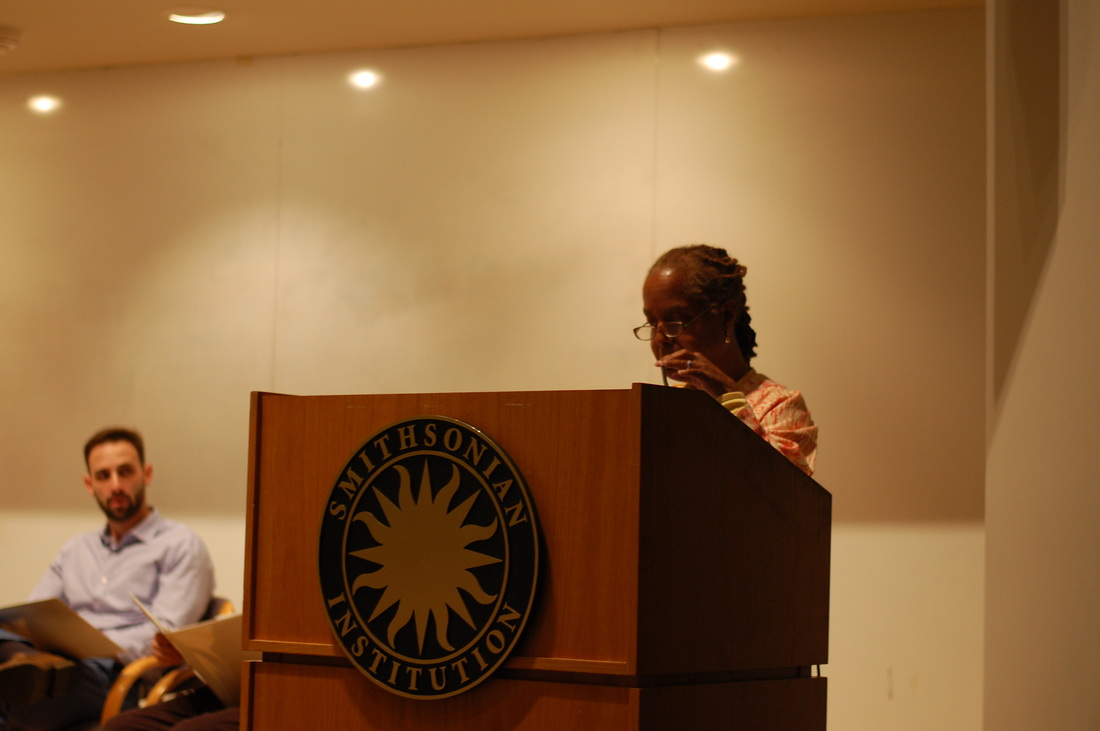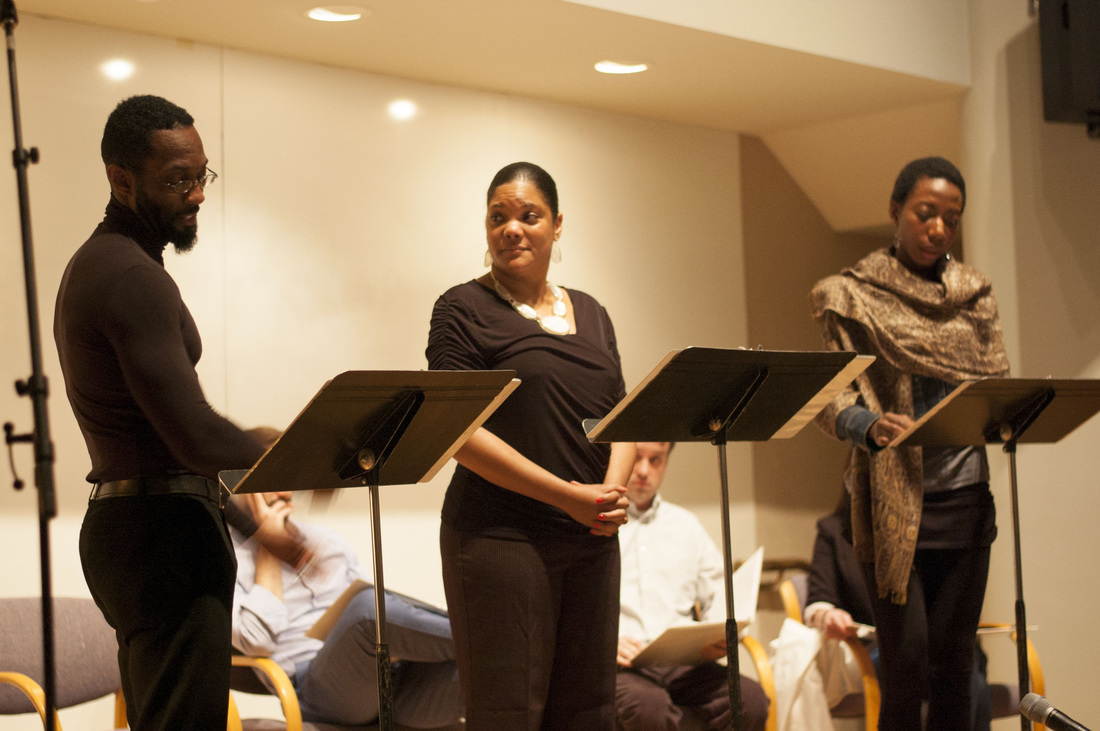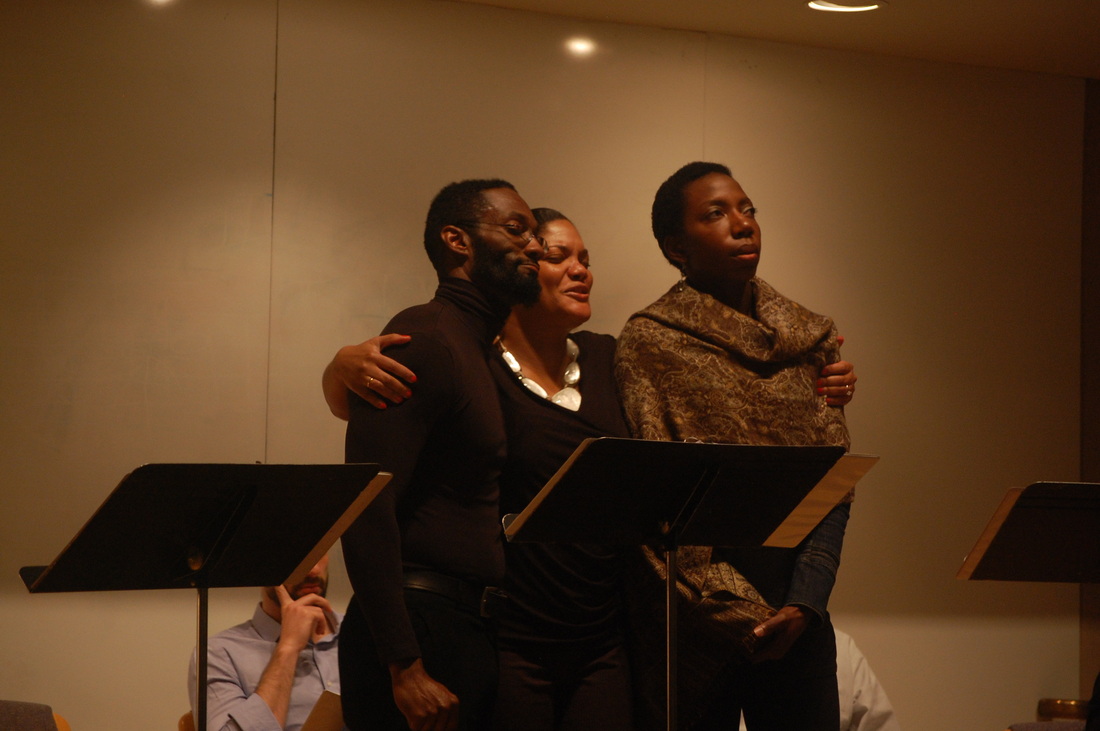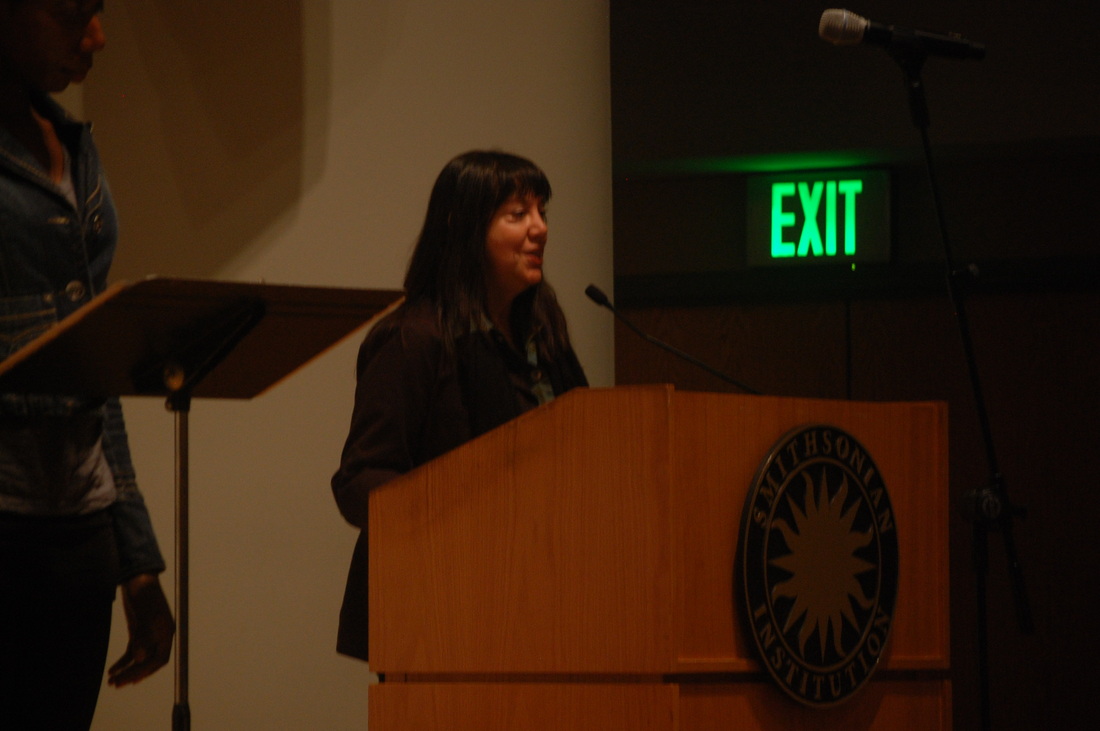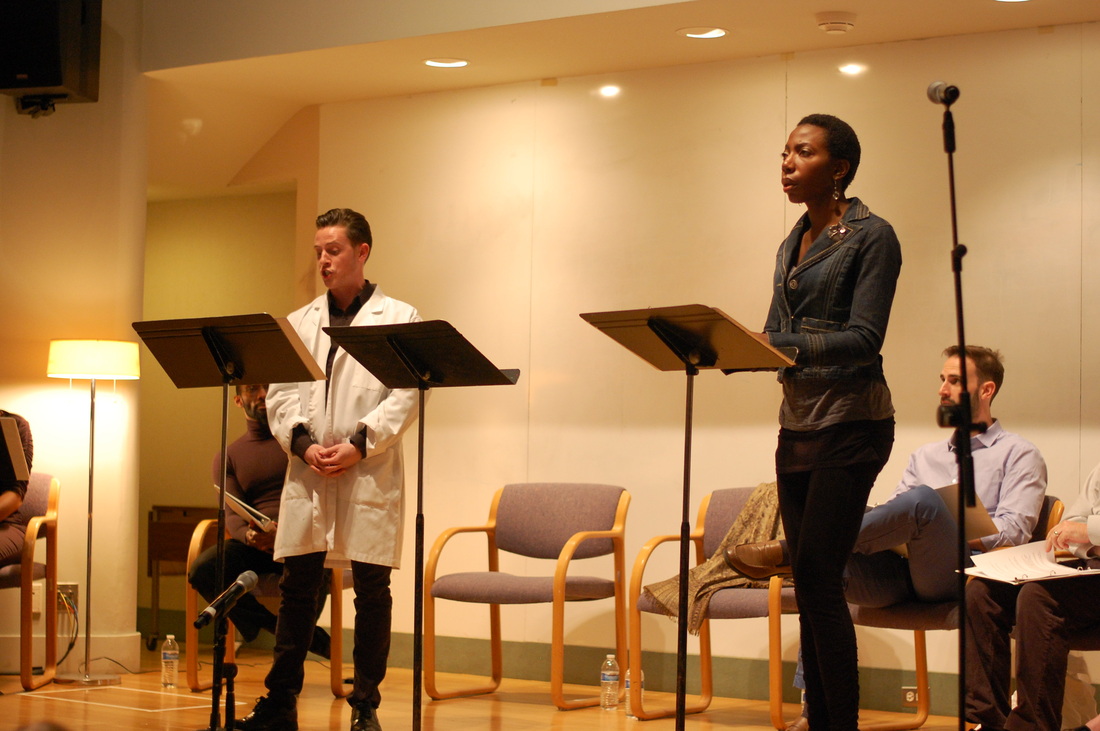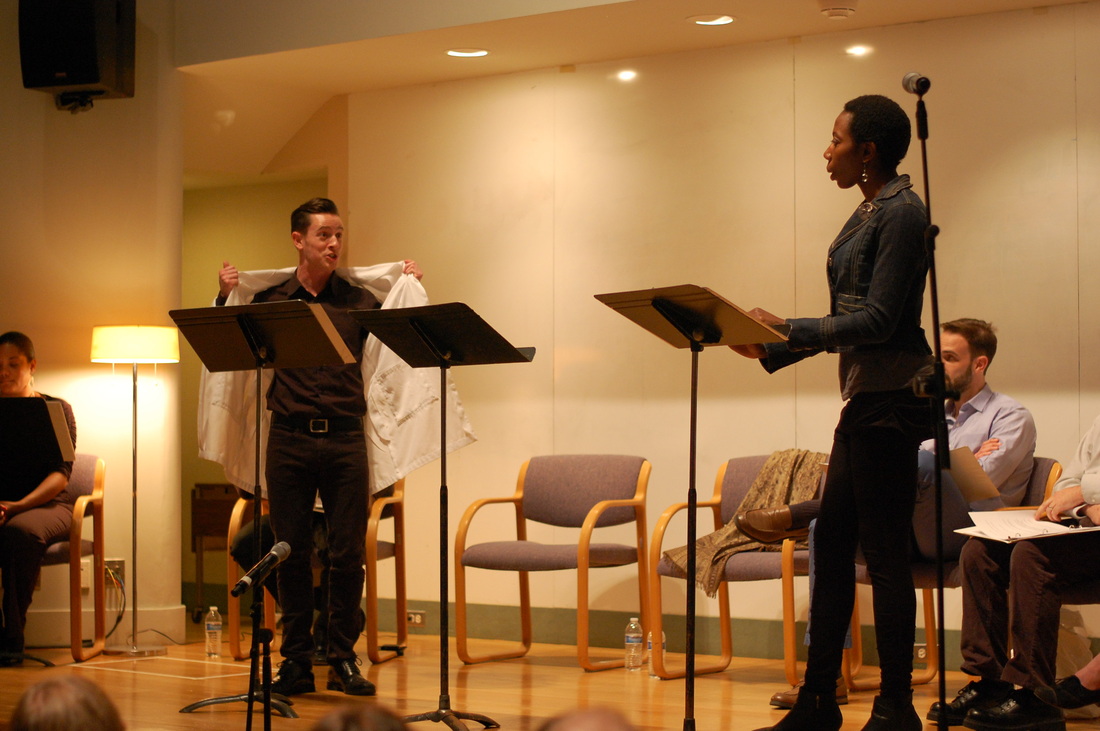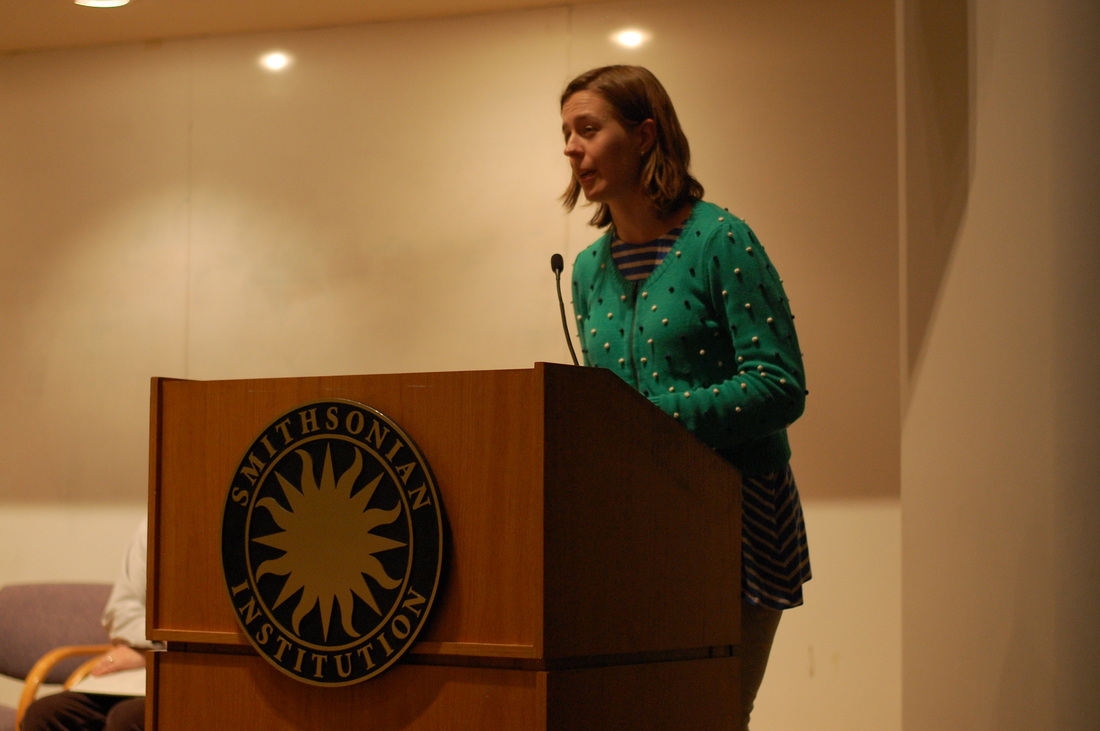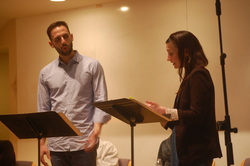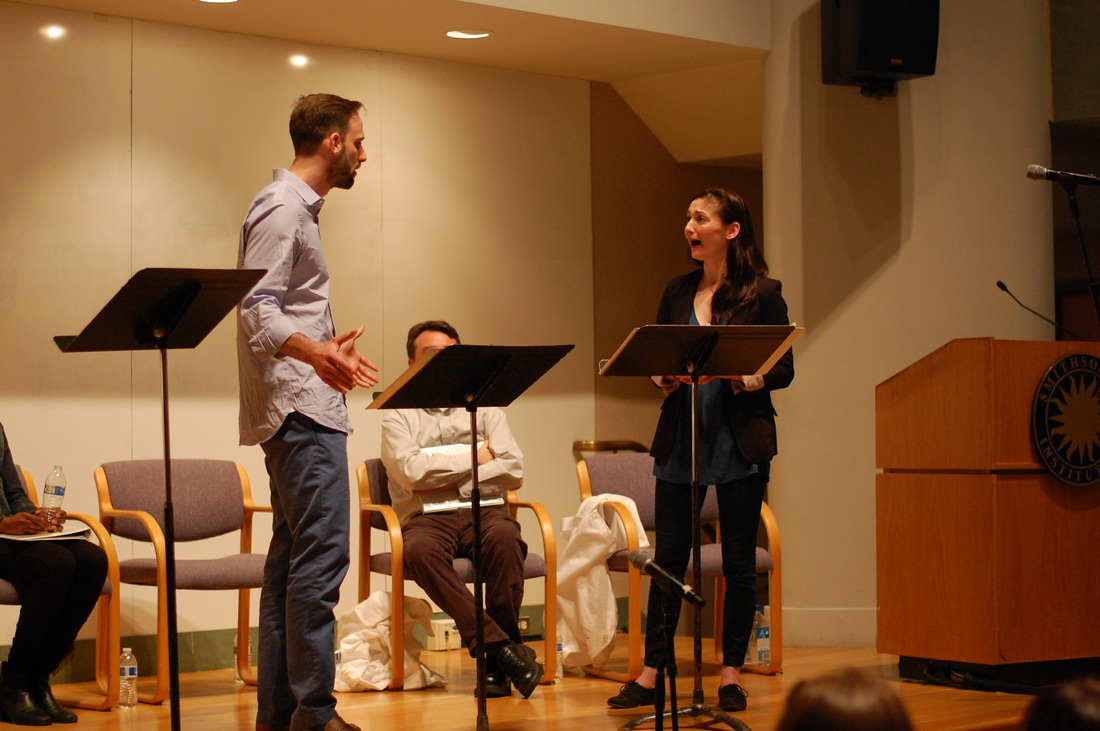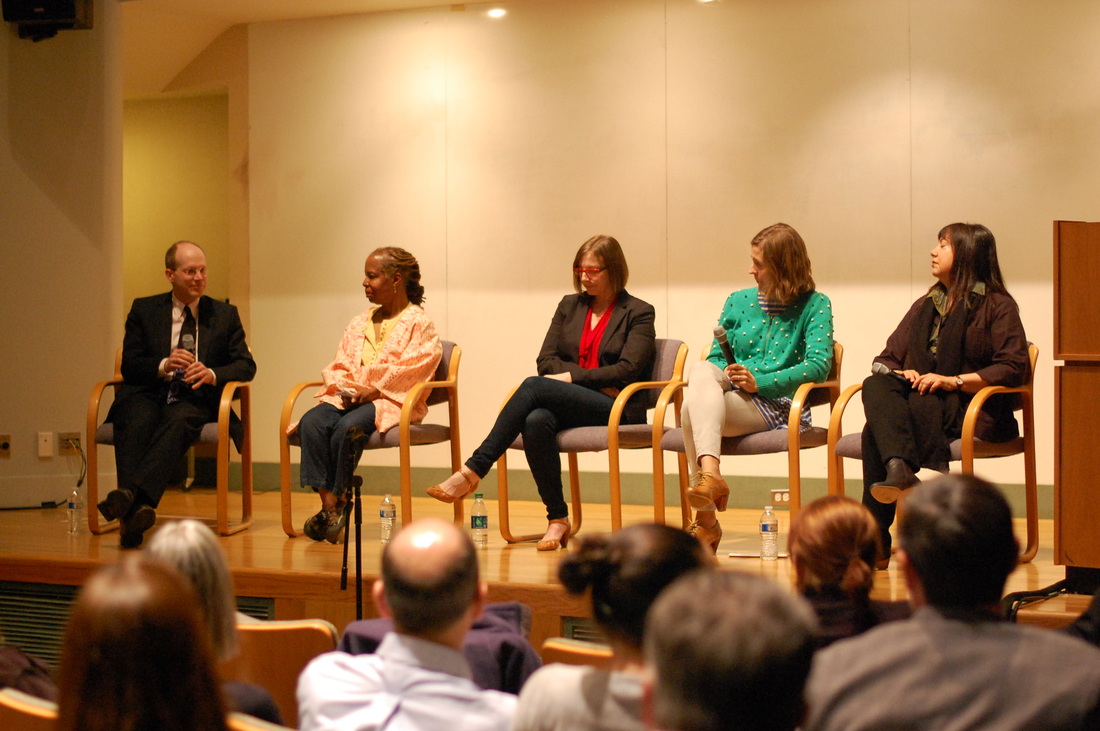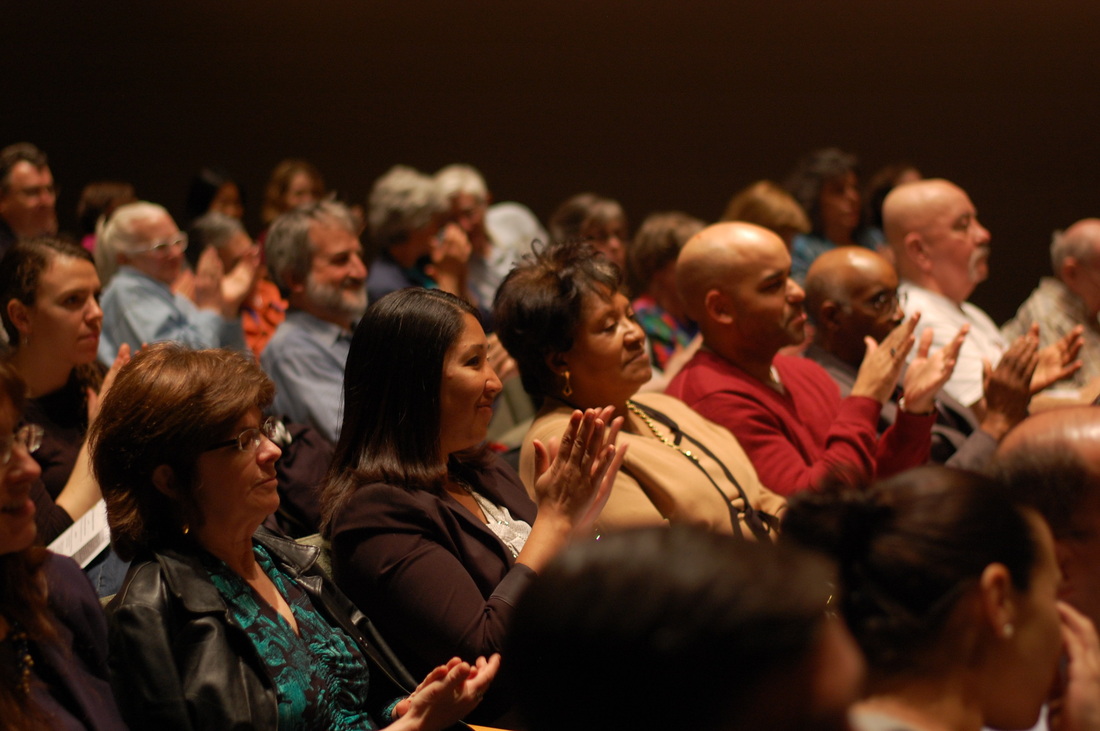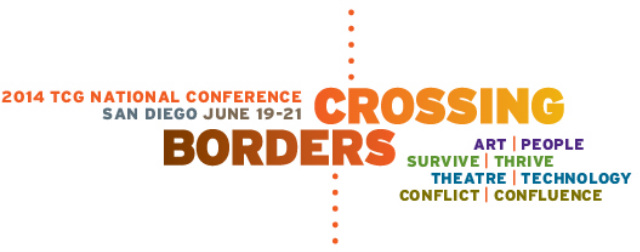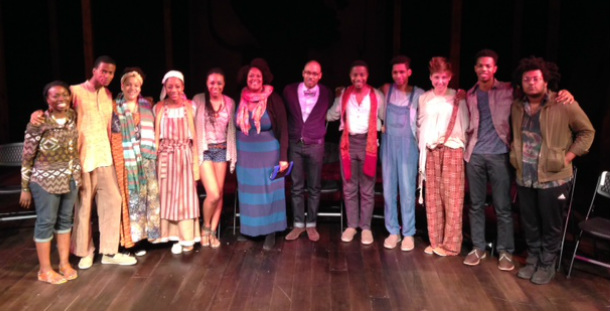Everyman Theatre: Race and Representation: “Our greatest accomplishment. Our greatest shame.”4/25/2014 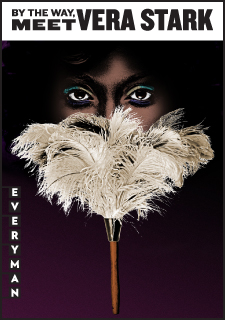 On Saturday, April 26 at 5:00 PM, Everyman Theatre will host a panel discussion on How Women's Voices Changed Our Culture in conjunction with the production of By the Way, Meet Vera Starks by Lynn Nottage. Hosted by radio personality Marc Steiner, panelists will include: Jacqueline Lawton (Dramaturg and Playwright), Dr. Kimberly Moffitt (Professor of American Studies), and Otis Cortez Ramsey-Zoe (Lecturer of Theatre Arts & Associate Artistic Director at Banished? Productions. It's the height of 1930s Hollywood. Film studios are filled with glitz, glamor, and eager starlets just waiting to be discovered. Enter Vera Stark, a determined and headstrong African-American maid to a white movie star. But it turns out that Vera is an actress, too! When the stars align and both actresses are cast in the same Southern epic, the story behind the cameras leaves Vera with an unexpected and controversial legacy scholars will question for decades to come. Deliciously funny and wildly entertaining, Vera Starkuses today's obsession and fascination with tabloids and celebrity gossip to get to the truth behind this mysterious legend of Hollywood. What is the personal cost of being a forerunner - a barrier breaker? Through her storytelling, Lynn Nottage reminds us of those who are marginalized by circumstance, yet fervently trying to assert their presence. Join our next World of the Play panel as we examine the impact of racial stereotypes within the entertainment industry and the effect on our communities and greater culture. Click here to learn more and here to purchase tickets. 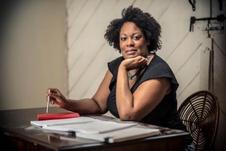 Jacqueline Lawton was named one of the top 30 of the nation's leading black playwrights by Arena Stage's American Voices New Play Institute. She has received commissions from Active Cultures Theater, Discovery Theater, National Portrait Gallery, National Museum of American History, Round House Theatre and Theater J. Ms. Lawton is a member of Arena Stage's Playwright's Arena. 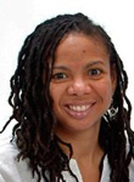 Dr. Kimberly Moffitt holds a Ph.D. in Mass Communications from Howard University. She is a Professor of American Studies at University of Maryland Baltimore County where she focuses her courses on popular culture, intercultural communications and media studies. Her research interests include representations of sports stars and sporting events, hair/body politics, media representations of people of African descent 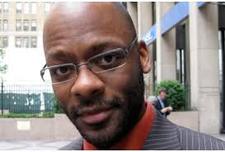 Otis Cortez Ramsey-Zoe is an Associate Artistic Director atbanished? productions, Lecturer of Theatre Arts at Howard University, Series Editor for NoPassport Press's Dreaming the Americas Series, and freelance dramaturg. He has developed new works with such organizations as The Sundance Institute, Kennedy Center, Theatre J, Arena Stage and Center Stage. 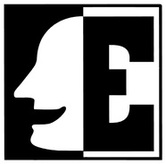 Everyman Theatre is an intimate Equity theatre with a resident company of artists from the Baltimore/Washington area, dedicated to producing quality plays that are accessible and affordable to everyone. Everyman Theatre is a professional Equity theatre company celebrating the actor, with the resident company of artists from the Baltimore/DC area. Founded in 1990 by Vincent Lancisi, the theatre is dedicated to engaging the audience through a shared experience between actor and audience seeking connection and emotional truth in performance.
0 Comments
 On Sunday, April 27th at 12:10pm, The Shakespeare Theatre Company, recipient of the 2012 Regional Theatre Tony Award®, will present the AsidesLIVE Symposium: Henry IV, Parts 1 and 2. The event will begin at 10:00 a.m. and will go until 1:00 p.m. This intimate and intensive symposium is dedicated to looking at Shakespeare Theatre Company's repertory through different lenses. The morning event will feature the production's Prince Hal, actor Matthew Amendt, Pulitzer Prize winning playwrightRobert Schenkkan and other special guests. There will be 3 panels each discussing a different aspect of Henry IV, Part 1 and 2. Refreshments will be provided. I'll be taking part in the Writing Our History panel along with Robert Schenkkan, Pulitzer Prize winning playwright of Broadway’s All the Way . STC’s Literary Associate and Production Dramaturg, Drew Lichtenberg, will moderate. "What is the history play," Lichtenberg ask. "People often throw those words about with complete confidence in the fixity of the genre, but when you look closer, 'the history play' becomes a surprisingly amorphous and constantly evolving term of art. I'm eager and excited to hold up models of the history play, both Shakespearean and contemporary, as we attempt to answer this surprisingly complicated and resonant question." Here's more information about the "Writing Our History" panel and entire symposium: About the Moderator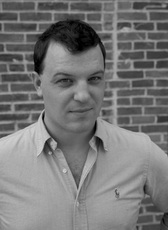 Drew Lichtenberg is the Literary Associate at the Shakespeare Theatre Company in Washington, D.C., where he has worked on 13 plays out of the 36-play canon and overseen commissions of new translations and adaptations of classical plays from the global repertory. Previous to joining STC, he spent two seasons at Baltimore Centerstage, and he has worked at the McCarter Theatre Center at Princeton University, Yale Repertory Theatre, Williamstown Theatre Festival, and the Public Theater’s Shakespeare Festival in Central Park. He is a Lecturer at the Catholic University of America, and has been a guest teacher at Georgetown University, George Washington University, Carnegie Mellon University, and the Kennedy Center’s KCACTF Festival (since 2011). About the Panelists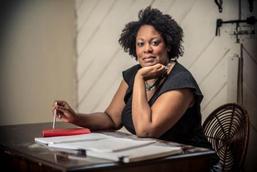 Jacqueline Lawton was named one of the top 30 of the nation's leading black playwrights by Arena Stage's American Voices New Play Institute. She has received commissions from Active Cultures Theater, Discovery Theater, National Portrait Gallery, National Museum of American History, Round House Theatre and Theater J. Ms. Lawton is a member of Arena Stage's Playwright's Arena. 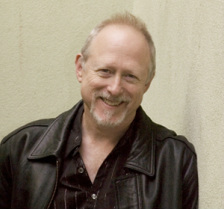 Robert Schenkkan is a Pulitzer-prize winning, Writer's Guild Award winning, Tony-nominated, two-time Emmy nominated writer of Stage, Television, and Film. He is the author of twelve original full-length plays, two musicals, and a collection of one-act plays. He co-wrote the feature film, THE QUIET AMERICAN and his television credits include THE PACIFIC, THE ANDROMEDA STRAIN and SPARTACUS. AsidesLIVE Symposium: Henry IV, Parts 1 and 2 Agenda 10:00 a.m. - Welcome Remarks
Hannah Hessel Ratner, Shakespeare Theatre Company Audience Enrichment Manager. 10:10 a.m. – Between Two Fathers Both plays follow the pull of influences on Prince Hal from his royal father and the ignoble Falstaff. This discussion will feature STC’s Prince Hal Matthew Amendt in conversation with Michael Kimmel, the Executive Director of the Center for the Study of Men and Masculinities and George Mason University professor Robert I Matz. Moderated by Hannah Hessel Ratner. 11:10 a.m. – Revisiting the Chimes at Midnight In 1994, Michael Kahn edited and directed the Henry IV plays to create one evening of performance, featuring many of STC’s favorite performers. Three have returned, taking on new characters in our current repertory production. In this conversation Edward Gero, Ted Van Griethuysen and Craig Wallace reflect on approaching the plays then and now. Moderated by the Assistant Director of the 1994 production: STC’s Director of Education, Samantha Wyer. 12:10 p.m. – Writing Our History Shakespeare wrote Henry IV, Parts 1 and 2 approximately 200 years following the historical events depicted. As today’s playwrights approach American history, what can they learn from the Bard? A conversation with Robert Schenkkan, Pulitzer Prize winning playwright of Broadway’s All the Way and local playwright, teacher and theatrical advocate Jaqueline E. Lawton. Moderated by STC’s Literary Associate and Production Dramaturg, Drew Lichtenberg.This multi-hour symposium will look deeply into repertory productions of Henry IV, Parts 1 and 2. Morning refreshments will be served. Morning refreshments will be served. Tickets are $20 regular, $15 ticket holders/subscribers, $7 student tickets. Click here to purchase tickets and for more information. On Sunday, May 4, 2014, the D.C. Regional Chapter of The Dramatists Guild of America will host the Playwrights: Taking Control of Our Own Fates workshop at the Kennedy Center. This day-long workshop for playwrights, which is now at capacity with 100 participants, will cover a wide variety of subjects of critical importance to dramatists in the 21st century. This event was organized by Brent Englar, Gwydion Suilebhan, and Noelle Viñas. While it won't be livestreamed, there are several bloggers and tweeters in this group. To follow the conversation, use #PwFate #newplay. After a brief welcome address, the day will include: Brief Welcome (11:00 am) Dramatists Guild's DC representative Gwydion Suilebhan Ask the Expert: How to Fringe (11:10 am-12:00 pm) A panel discussion, moderated by playwright Brett Abelman, on the secrets to success in Fringe festivals far and wide. Panelists will include playwrights Stephen Spotswood, Ann Fraistat, Regie Cabico, Bob Bartlett, and Laura Zam. Lunch/Mix-and-Mingle (12:00-1:00 pm) Social Media for Playwrights (1:00-2:00 pm) A presentation on the essentials of social media by dramatist and leading social media expert Devon Smith. Playwrights Raising Money (2:00-3:00 pm) A panel discussion designed to help playwrights understand the secrets of raising money in support of their work. Moderated by Jojo Ruf panelists include playwrights Kathleen Akerley, Jacqueline E. Lawton, Ari Roth, and Anu Yadav. Break (3:00-3:30 pm) Roundtable: Local Playwright Initiatives (3:30-4:30 pm) A round-table discussion of local playwright initiatives: their models, missions, challenges, and opportunities. Moderated by Renee Calarco, participants include Caleen Sinnette Jennings, Allyson Currin, Danielle Mohlman, and Joanna Castle Miller. Town Hall Brainstorming (4:30-6:00 pm) Discuss the fate of the DC and Baltimore playwriting community: the issues we're facing and how we'd like to address them. This should be a vital opportunity for connection, empowerment, and direction for all of us. 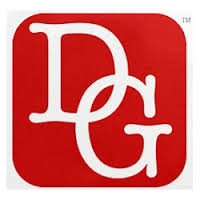 The Dramatists Guild of America was established over eighty years ago, and is the only professional association which advances the interests of playwrights, composers, lyricists and librettists writing for the living stage. The Guild has over 6,000 members nationwide, from beginning writers to the most prominent authors represented on Broadway, Off-Broadway and in regional theaters. On Thursday, April 10th, I had the pleasure of participating in The Drama of DNA: Genomics on Stage Workshop, which was co-hosted by the National Human Genome Research Institute of the National Institutes of Health (NHGRI) and the Smithsonian Associates. I was joined by D.C. area playwrights Renee Calarco, Joshua Ford, D.W. Gregory, Ron Kampeas, Ari Roth, John Strand, Gwydion Suilebhan, Richard Washer, Irene Wurtzel, and Laura Zam. I was delighted to see my colleagues from Arena Stage, Linda Lombardi (Literary Manager) and Amelia Powell (Casting Director) and also, Shirley Serotsky (Associate Artistic Director of Theater J/director of the staged readings) there as well. What was unique about this experience was that several scientists took part in the conversation as well. Among them were Vence Bonham, Lawrence Brody, Lynn Bush, Jim Evans, William Gahl, Sara Hull, Philip Shaw, and Eric Green, Director of the National Human Genome Research Institute (NHGRI). With the help of photographers Maggie Bartlett and John Daniels, I was able to capture our experience: Lovely Van Ride and Fancy Coffee MachinePre-workshop Mix and MingleIntroduction and WelcomeWe met at 9:30am for coffee, tea, and light refreshments, including many wonderful and delicious flavors of Chobani. We were also treated to homemade pumpkin bread! Caffeine and food are excellent unifying forces across multiple disciplines! We received a warm and enthusiastic welcome from both Dr. Eric Green, the Director of the National Human Genome Research Institute, and Karen Rothenberg, J.D., M.P.A., the Senior Advisor on Genomics and Society to the Director, National Human Genome Research Institute. Karen reiterate our reason for coming together: "The purpose of this workshop is to generate dialogue about the intersection of science and the theatrical arts among participants with interest and expertise in science, medicine, bioethics, policy, education and the theatrical arts. The workshop will also seek to stimulate a community of playwrights and theatre professionals interested in engaging with scientists to encourage public discourse on issues related to biomedical research and genomics." As part of preparation, Karen shared a chapter from her book, The Drama of DNA: Narrative Genomics, which she co-authored with Lynn Bush. As with this workshop, the book explores the intersection of drama, genetics, genomics and bioethics. Panel 1: Uncovering the Drama in Science Moderated by Karen Rothenberg with panelists: Dorothy Fortenberry (Good Egg), Lisa Loomer (Distracted), Cassandra Medley (Relativity), and Anna Ziegler (Photograph 51). Theater J’s Artistic Director, Ari Roth served as the guest respondent. This panel explored the interest of playwrights and theatre professionals in genomics, the process of writing in this area, and the challenges involved in creating and producing theatre related to genomics. Karen asked each of the playwrights to speak about what had inspired their plays and how they went about the process of learning the science. Dorothy shared that the Good Egg was based on family history. In this play, she explores the impact of bipolar disorder on individuals and families, and the possibility of being able to test in vitro embryos for the bi-polar gene. While the science isn’t there yet for such a test, the possibility makes for an interesting and complex dilemma. Still, she read books, magazine features, and newspapers articles. She also connected with a scientist. Lisa identifies herself as a political playwright and is inspired by what’s going on her life and what’s going on in the news and world around her. Her play, Distracted, asks what does it mean to be ADD in an ADD world and who benefits from such diagnosis of children. When conducting research, Lisa asked herself if it was possible to have too much science in the play. Also, she found that the facts were less important that the relationships between characters and the impact that the science had on the lives of the characters. Distracted was commissioned by the Mark Taper Forum and they brought in experts on various topics. Her creative researched came from books and the feedback from the experts. Cassandra shared that she draws stories from everyday life. Her play, Relativity, was inspired by a conversation she overhear a dinner party. Two history students were discussing a pamphlet they had received, which explained that if you of color, your melanin provided you with certain beneficial properties, an inherent racial supremacy of sorts. She was so intrigued that she immediately followed up with research to learn more and received a commission from the Sloan Foundation to develop the play. She even spoke with melanin scientists and worked with a geneticist, who could offer a counter argument. Also, Cassandra was able to keep a decent amount of the science in the play because the scientist presents her findings at a conference. Anna explained that she had been commissioned by Maryland-based theatre company, Active Cultures, to write a play about three women scientists: Rachel Carson, Rosalind Franklin, and Roger Young-three women who loved science and changed the world. After the reading at the Kennedy Center’s Page-to-Stage Festival, Anna was more drawn to the story of Rosalind Franklin. As happens, I served as dramaturg on this world premiere of what would become Photograph 51. Throughout the process, Anna did as much research as possible, but wanted to present the science as clearly as possible and in a way that she understood it. This way, an audience of non-scientist would understand the world of the play as well. Ari Roth, shared that one of the main reasons to marry science and art was to promote understanding and literacy. The human condition, which includes our health and relationship to technology is inherently dramatic and there is much to mine in way of storytelling. Among many of the playwrights, myself included, there is a deep interest and appreciation in the sciences and also a strong desire to help people understand that science is a beautiful endeavor and intimately intrinsic to our lives. Panel 2: Real‐life Drama and the Future of Genomics Moderated by Lawrence Brody with panelists: James Evans, William Gahl, Sara Hull, and Philip Shaw. This panel addressed the drama involved in the clinical and research use of genomics, including discussion of case studies and emerging trends in genomics, and it was thrilling! As the scientists shared some of their most intriguing case studies, I sat with my mouth agape. They were mindful and obliged to keep patient confidentiality, but shared enough about psychological conditions and medical circumstances for us to understand the ethical dilemmas that many scientists and clinicians face. I couldn't take notes fast enough and saw the my theatre colleagues were deeply affected as well. Selfishly, I decided to take art in this workshop because my new play, Among These Wild Things, addresses science, religion, and art. The lead character, Jesse Lee, is agnostic and a geneticist, whose research is centered on identity, race and genetic variation. She’s married to Nigel, an art historian, who recommits to his Jewish faith after the loss of his grandfather. Once he does, their marriage is put to the test. I knew this workshop would help me understand Jesse's world better and I'm thrilled to announce that I'll working with Vence Bonham to learn even more. Now, as I said, I took notes furiously. I was listening for situations that might resonate with my character. Here's what stood out most to me:
Discussion: Fostering a Dialogue between the Arts and SciencesModerated by Vence Bonham, this open discussion considered ways to encourage the greater interaction between the arts and sciences and the use of theatrical arts as a means of promoting public discourse related to scientific. We talked about possible commissions and ways that scientists could participate in community engagement initiatives related to productions. We shared how working with scientists early in the writing and rehearsal process was beneficial to theatre artists. Someone suggested possible embedded residencies in science labs or observing clinician during consultations. We even addressed the need to make room for conflict. Meaning, while the artists could certainly help get information out to the public about new discoveries and advances, there must also be room to dramatize the emotional and ethical push back. While organizationally this may prove challenging (and would in any discipline), therein lies the drama of the human condition that we're all interested in exploring. All in all, it was a worthwhile and invigorating experience. I was delighted to learn that this would be the first of many collaborations. Theatre has a long history of addressing social, political, and cultural issues. The sciences—especially the intricate, rich, deeply personal, and ethical complexities of genomics and genetics—have an enormous impact our everyday lives. When theatre artists and scientists work together, we can open up, clarify, and engage with scientific literacy, which may not be understood by society at large. Doing so will not only break down the barriers that often exist between scientists and the public, but also encourage learning and curiosity. It is the hope of many in the room that by having a greater understanding of the role and impact of genomics on human biology, we can improve our health and medical practices. 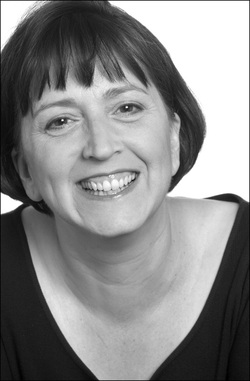 On our way out, my dear friend and fellow playwright, D.W. Gregory (Radium Girls), shared her thoughts about her experience and kindly allowed me to share them here: "The discussion overall was really intriguing; but what captured my interest was a statement made by William Gahl, who is also the Director of Undiagnosed Diseases at NIH. He said that a patient without a diagnosis has no credibility -- not only with coworkers, friends and family, but also with the medical establishment. He told the story of a woman with an undiagnosed ailment that affected her in strange, horrible ways. One weekend she stubbed her toe. Because of her condition this minor accident led to fatal consequences. She called her primary care doctor on a Saturday to report the problem, and he essentially said "take two aspirin and call me on Monday." By Monday she was septic, and she died. It hit me that this lack of credibility she suffered was also with herself--because she didn't reject the doctor's counsel and go straight to the emergency room. Even though her experience to that point would have suggested she probably should have. She tried self-care, which was a fatal error. And it strike me now how badly we need answers in this culture. When we don't have them, we when can't find them in medicine, we categorize the sick person as a crank, a crazy, a hypochondriac. But in reality, modern medicine is often at a loss -- there are strange conditions and ailments that affect people, and there are no answers. No one can figure it out. And it's a great tragedy that so many people have to suffer needlessly in order for the rest of us to maintain what is really a self-delusion---that there are always answers to be had. That science has everything under control. It doesn't." The Drama of DNA: Genomics in PerformanceLater that evening, “The Drama of DNA: Genomics on Stage,” performances took place at the Smithsonian’s Dillon Ripley Center. The readings and post show discussion were part of the ongoing educational outreach for the “Genome: Unlocking Life’s Code” exhibit at the Museum of Natural History. It featured staged readings of scenes from Dorothy Fortenberry's Good Egg, Lisa Loomer's Distracted, Cassandra Medley's Relativity, and Anna Ziegler's Photograph 51 were presented under the direction of Shirley Serotsky, Theater J's Associate Artistic Director. “Spending the morning at the NIH speaking with some of the world’s leading scientific minds; and then the afternoon rehearsing these wonderfully detailed and layered scenes (with the gift of having the playwrights in the room) was an honor and a treat," Serostky said. "My father has been a science educator for over forty years. The passion he has for science in no small way inspired the passion I have for theater. These two communities can intersect and overlap in meaningful and productive ways.” Please enjoy these lovely photos from the event: Anna Ziegler introduces Photograph 51About the PlayJames Watson and Francis Crick received the Nobel Prize for their work modeling the DNA molecule. But did they steal data from a female colleague and claim credit for themselves? Based on a true story, the provocative Photograph 51 explores sexism, ethics, and scientific collaboration through the recounting of how passionate biophysicist Rosalind Franklin provided the key breakthrough leading to the DNA discovery. Cassandra Medley introduces RelativityAbout the PlayKalima, a young, ambitious, up and coming Bio‐geneticist has a beloved mother, Claire, who is celebrated within several small African‐American intellectual circles as a “Melanin Scientist.” Claire is a leading proponent of the belief that “people of color of physically, mentally, emotionally superior to others because of the supposed larger concentration of melanin in their skin. Circumstances force the Kalima to have to decide whether to publicly denouncer her own beloved mother’s lifetime career, and save her own professional reputation, or to hold fast to her mother’s approval, and emotionally sustaining love. Relativity is a play about melanin, DNA, and family. Lisa Loomer introduces DistractedAbout the PlayWhat’s going on with nine year old Jesse? He can’t sit still, he curses, he raps, you can’t get him into—or out of—pajamas. His teachers think it’s ADD. Dad says, “He’s just a boy!” And Mama’s on a quest for answers. Is it “dysfuncton” or “difference?” And what’s ADD in an ADD world? She consults a psychologist, a homeopath, an environmental physical, a shrink. She talks to neighbors—whose kids have their own diagnoses. A psychiatrist prescribes Ritalin. Throughout, Jesse is an offstage voice, becoming more and more desperate. And will his parents’ marriage survive the quest for a diagnosis? Everyone is distracted‐‐including an actor who can’t stay in character. Distracted is a look at a modern family and an epidemic dilemma: Are we so tuned into our 27/7 info‐rich world that we’ve tuned out what really matters? Dorothy Fortenberry introduces Good EggAbout the PlayFor as long as she can remember, Meg has been taking care of her younger brother Matt – through their childhoods, after their parents died, and especially after his diagnosis of bipolar disorder. Now in their twenties, Meg and Matt live together in Washington, DC, where she’s a Congressional researcher, and he’s a freelance web designer. She’s organized, he’s chaotic. She’s tidy, he’s creative. And she’s getting pregnant – with the help of a sperm donor and IVF. Good Egg takes place on the night before her in vitro embryos undergo genetic testing, a procedure known as Preimplantation Genetic Diagnosis or PGD. Matt's discovery that Meg plans to screen her embryos for bipolar disorder sets off a cavalcade of decisions and revelations, and neither sibling will ever be the same. Over the course of the play, the action switches from their apartment to Meg’s womb to Matt’s brain and back, as they struggle with their individual desires and shared need for family. As the night wears on and Matt’s medication wears off, both of them are pushed irrevocably to the limits of unconditional love. Post Show DiscussionPlaywrights Dorothy Fortenberry, Lisa Loomer, Cassandra Medley, and Anna Ziegler spoke with Jack Evans about how and why they transformed complex topics rooted in genetics—including issues of identity, the power of genetic information, and the impact of health decisions on family dynamics—into compelling theater. A diverse, enthusiastic, and rapt audience!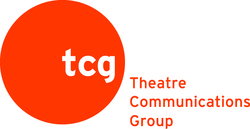 In just two months, the 24th TCG National Conference: Crossing Borders will take place in San Diego from June 19-21, 2014. I can hardly wait! Each year, the conference offers an opportunity to see friends, meet new colleagues, learn from presenters, and engage in dialogue that will help shape the future of the American Theatre. Building on the success of the programmatic arcs from the 2013 TCG National Conference: Learn Do Teach in Dallas, the conference will focus on four main areas of exploration: Art | People: How are relationships changing between theatres and communities? Survive | Thrive: How can we move our financial practices from surviving to thriving? Theatre | Technology: How can the live arts better engage with our digital culture? Conflict | Confluence: How can we have productive conversations about difference? To make these arcs even more intentional and impactful, TCG will host a series of online salons on their blog, the TCG Circle. Over the next couple of months, I'll be curating salon around the following arcs: {Theatre | Technology} How can the live arts better engage with our digital culture? As the rate of cultural change from disruptive technologies increases, its impact is often seen as detrimental to theatre and other live arts. Yet many theatres are harnessing those technologies—through marketing resources, backstage tools and in the work itself—to innovate and strengthen their programming and infrastructure. {Theatre | Technology} sessions will ask big questions about crossing the boundaries between the live and the digital, and trade nuts and bolts tactics for taking advantage of the latest technological advances. {Conflict | Confluence} How can we have productive conversations about difference? Let’s face it: in the theatre field, we disagree as often as we agree, and those disagreements often shed more heat than light. How can we create space for the taboo topics and difficult conversations we need to have: between departmental silos, between funders and institutions, between all our intersections of diversity? How can conflict of ideas lead to positive growth? Participants attending {Conflict | Confluence} sessions will not only learn strategies for managing complexity and difference within their own institutions, but also together reimagine some of the most significant perceived barriers that divide our field. Additionally, I'll be continuing each of the blogs related to TCG’s Diversity & Inclusion Initiative:
If you'd like to contribute to any of these salons–and everyone is invited to participate–please email me and I’ll send you more information. About the ConferenceArena Stage and The George Washington University will host a national, two-day creative and scholarly conference at the Marvin Center on the campus of GW focused on exploring the American Civil War and its Aftermath, through presentations, panels, and performances. Workshops will focus on specific topics and issues of life during the War and its connection to the present, creating new theatrical, visual and movement-based work from these discoveries. A goal of the conference is to bring scholars and artists together in dialogue about the significance of the Civil War and its resonances in our present lives. The participants will have the opportunity to explore aspects of Civil War history and how this history may reverberate in their own personal narratives, as the participants are invited to create expressive responses based on this collision of the personal and historic. The overarching goal of the project is to find ways to continually interweave performance and scholarship, crossing traditional boundaries by bringing together the perspectives and resources of the artistic and academic communities in a wide-ranging, humanities-based exploration of civil conflict. Click here to reserve your tickets. AgendaMonday, April 21st 9:15 to 10:30 – Opening session – Welcome and introduction by Dr. Ben Vinson III, Dean of the GW Columbian College of Arts & Sciences. Creative Research in Art and the Academy: Using her current project, HealingWars, Liz Lerman will speak to the multiple methods artists use in researching their projects. She will also discuss the implications of creative research for academic institutions and art audiences. This will be followed by the presentation by Professor Nina Seavey of a short preview of Healing Wars, the documentary film, a rare blending of dance, documentary, and drama that will focus on the intimacy of character and complexity of narrative explored by Healing Wars on stage, moving them past performance and into the realm of filmic interpretation. Betts Theatre of the Marvin Center. 10:45 to 12:00 –Welcome and introduction by Edgar Dobie, Managing Director of Arena Stage. James Swanson (author of Manhunt, Lincoln’s Assassins: Their Trial and Execution, and Chasing Lincoln’s Killer) will discuss his works on the assassination of President Lincoln 12:15 to 1:15 – lunch (and book signing by Swanson) 1:30 to 2:45 p.m. – Four workshop sessions. Break-out rooms in the Marvin Center’s 3rd and 4th floors. See information below. 3 to 4:15 p.m. – Healing in the Aftermath – GW Professor Leslie Jacobson, session convener, joined by Professors Jennifer James and James Miller, and guest speakers, will examine the aftermath of the American Civil War and the ways that Reconstruction shaped race and gender relations in the US, compared with the struggle against Apartheid and the ways that the Truth & Reconciliation Hearings shaped race and gender relations in South Africa – Betts Theatre. Readings performed by GW students, will accompany the presentation and discussion. 4:30 to 5:45 – Part I: Music, the Centennial, and Whitman in Philadelphia, Professor Karen Ahlquist, with Kevin Frey, baritone and Frank Conlon, pianist Part II: The Heart of the Stranger That Hover'd Near: A recital performance in words, music and song focused on Walt Whitman's contributions to healing during and after the Civil War. Material suggested by Christopher Sten, Robert Baker, and Alan Wade; Edited, arranged, and directed by Alan Wade, with Pianist: Frank Conlon; Soloist: Michael Noel; Whitman: Delante Fludd; Voices: Rachel Matusewicz, Hassan Dayek, Catherine Mullins, Alexandria Taliafero, Sam Game, Will Low – Betts Theatre 6 to 7 p.m. – Reception Tuesday, April 22nd 9:15 to 10:30 – Welcome and Introduction by John Wetenhall, Director, GW Museum and Textile Museum Professor Tyler Anbinder’s presentation on the key role that the American Civil War played in the making of modern Washington DC – Betts Theatre 10:45 to 12:00 p.m. – Four workshop sessions. Break-out rooms. See information below. 12:15 to 2 p.m. – Lunch 2:15 p.m. to 3:30 p.m. – Four workshop sessions. Break-out rooms. See information below. 3:45 to 5:15 p.m. – – Presentations by GW students receiving this year’s CWP theatre commissions, and by Arena Stage’s youth troupe, Voices of Now – Betts Theatre Click here to reserve your tickets. Workshop Breakout Sessions John Molestress, Founding Director of force/collision& Hari Jones, Assistant Director and Curator of the African American Civil War Freedom Foundation and Museum
During the artistic component of this workshop, the African-American Loyal League and "knowledge circles" will be further explored through an exercise which physicalizes the significance and practice of the transference of messages, hidden codes and "insider" language vital to the movement's means of communication. Jacqueline Lawton, Playwright, & C.R. Gibbs, Lecturer, Author, Historian: "Black, Copper, and Bright: A Fight for Freedom and Justice from Page to Stage" In this interactive workshop, author and historian Carroll "C.R." Gibbs will share stories of African-American men and women who served the Union, enlisted in the only African American Civil War regiment raised in the nation's capital, fought for freedom for the enslaved, and worked to achieve civil rights right here in the nation’s capital. Then, playwright and dramaturg Jacqueline E. Lawton will lead participants though theatre games and storytelling techniques to help bring the stories of the First Regiment, United States Colored Troops to life. Raymond Caldwell, Partnership Manager, Arena Stage & Matthew Penrod, National Park Service Ranger and Education Programs Manager at Arlington House, the Robert E. Lee Memoria "Examining Civil War History through Contemporary Myth" In this workshop, participants will work to personalize the meaning of the American Civil War by breaking down their own preconceived notions. Participants will examine the basic core human experiences of the Civil War while challenging and confronting their own prejudices in history. Through artistic collaboration, participants will synthesize the complexity of historical characters creating work that challenges monolithic narratives. Thembi Duncan, Producing Artistic Director of the African Continuum Theatre Company & DeAnne Blanton, Senior Military Archivist at the National Archives "They Fought Like Demons" In this workshop attendees will learn about some of the women warriors that fought as men during the Civil War. Attendees will explore how fluid identity was during the war and in the 19th century. Each person will take on the identity of a particular female soldier. Through a guided inquiry process attendees will explore the women’s experiences intimately and in relation to their own. Voices of Now – Mentor Ensemble: "Free For All" “Once upon a time there was a land and that land was broken, but it wasn’t always that way. What happens when you look deeper into something that has been the same for as long as you can remember? How long can you go without repairing something before it is broken forever?” In Free For All the Voices of Now Mentor Ensemble is exploring the repercussions of The Civil War on their lives 150 years later and what fault lines still remain in our society today. The play asks challenging questions about race, equality and freedom in order to explore how societies become divided and what a person’s responsibility is to the creation of change. Voices of Now is a drama and writing program dedicated to training young artists in ensemble-created theater. Participants explore creative writing, movement, vocal expression and collaboration as part of a dynamic artistic experience that challenges them to recount the personal stories that shape their lives. Each Voices of Now participant works with an ensemble to create an original, autobiographical play that explores social questions relevant to their communities. The plays are performed in May at Arena Stage as part of a week-long festival. The Voices of Now Mentor ensemble, one of ten ensembles participating in the program this year, is a group of artist that auditioned for this select group after spending at least one year creating Voices of Now Click here to reserve your tickets. Earlier today, I was speaking with friend and colleague "Artistic expression is intrinsically subjective. What makes art, in any medium, so compelling to me is that everyone can see something different in the same source material. (…that concept is how Rorschach got its name.) The things that move one audience member deeply, may leave another cold and vice versa. I am keenly aware of the absurdity of trying to "judge" art--whether it's via a theatre critic, the Helen Hayes awards, or the Source Festival selection process. There is no truly objective approach…because such a thing doesn't exist in art. And it shouldn't. When I'm reviewing readers' input, I'm always struck when I come across two perspectives that are aggressively divergent. And that moment reminds me that there is never a "right" answer in these things. It reminds me that just because I am moved by a play, it doesn't mean everyone else will be. To all of us making art, there is always an audience out there for our work. Whether it's been selected/awarded/reviewed the way we'd like it to be--for every person out there who's rejected it, there's someone else out there who loves it, or will love it when they discover it." 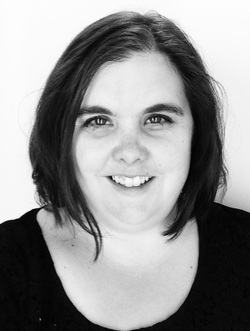 Jenny McConnell Frederick is Artistic Director of CulturalDC’s Source Festival and co-Artistic Director of the award-winning Rorschach Theatre, which she founded in 1999 with Randy Baker. For Rorschach, she has directed numerous productions including the Helen Hayes Nominated Voices Underwater and God of Vengeance as well as a recent sold-out run of Neil Gaiman’s Neverwhere. As Director of Artistic Programs at CulturalDC she oversees the selection, development and production of more than 25 new plays each year for Source Festival. Additionally, she runs CulturalDC’s Mead Theatre Lab Program and Flashpoint Gallery through which she works closely with visual and performing artists to create, develop and produce their own work. She lives in Washington, DC with her husband and her newest producing endeavor, a two year old son named Thane. Over the past few years, I've been asked to serve as a mentor to theatre students and emerging playwrights near and far. And recently, in a forthcoming interview, I was asked to share my thoughts on being a mentor. Here's a collection of thoughts I've shared over the years.
On Becoming a Mentor: I've always been the one to beg a seat at the table with the smartest person in the room. This way, I could listen, learn, grow, and be inspired. Many of my mentors are the women I knew in undergrad and grad school at the University of Texas at Austin: Amparo Garcia Crow, Jill Dolan, Ruth Margraff, and Omi Olono Osum. Recent mentors include folks I've met and reconnected with since moving to D.C.: Beth Blickers, Teresa Eyring, Gregg Henry, Morgan Jenness, Jennifer Nelson, Mary Resing, and Dawn Ursula. Some are also my peers: Sarah Bellamy, Ilana Brownstein, Julie Felise Dubiner, Jules Odendal James, and Dafina McMillan. So, when I was asked to be the one folks sat by, I thought wait a second, "How can I be a mentor when I'm still being mentored myself?" Then, I got over that, stopped being both selfish and self-conscious, and shared everything these amazing folks taught me. On Being a Mentor: I think about this quote from Benjamin Franklin: “Tell me and I forget, teach me and I may remember, involve me and I learn.” I believe that being a mentor different from being a teacher. It’s a process of engaging another person in rich, inspired and challenging dialogue about shared passions, thoughts and ambitions. This allows each person to come to the conversation at different points of entry, different levels of experience and different points of views. You meet in a place of respect and admiration. On Finding a Mentor: I started with people that I knew and who knew me. People who could speak to my ambition, enthusiasm, and experience. People whose aesthetic vision I admired and respected, even when it didn't mirror my own. For me, ultimately, it's was essential to find someone who shared my core and practicing values. I found that I was looking for someone to walk with in strength and solidarity. Someone who would challenge and nurture me. These are folks that I trust implicitly. Good Mentorship Advice: 1. It is essential that you learn how to talk about your work and aesthetic vision. You must be able to market yourself as a theatre professional. This will help with grants and interviews. Your narrative must begin with you who you are, what honed and shaped your voice and what you aspire to be. Be mindful, that there is a line between being clear about your path and being arrogant. It has to do with your intention. 2. There is no success without the community. I am who I am because of my spirit, ambition, drive, and vision, but also because many people along the way believed in me and lifted me up. It is a part of my life service and artistic vision to lift others up as well. “Ghosts hover where secrets are held in time: the secrets of what has been unspoken, unacknowledged; the secrets of the past; the secrets of the dead. Ghosts wait for the secrets to be released in time.” -- Alice Rayner, Ghosts: Death’s Double and the Phenomena of Theatre 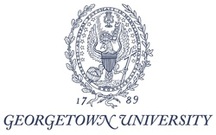 This past Friday, I was invited to lead a post discussion for Insurrection: Holding History, which was presented as a co-production by Georgetown University Theatre and Performance Studies and the Black Theatre Ensemble. Here's how the university's describes the play: "Moving like a bullet through time, Robert O’Hara’s Insurrection: Holding History traffics in spirits and ghosts to offer a wickedly witty romp through America’s history. A contemporary African-American graduate student confronts the specter of his 189-year-old great-great grandfather, as well as Nat Turner, the subject of his graduate school thesis on American slave insurrectionists. Engaging questions about who has the right to tell history and what kinds of stories get remembered and recorded, this challenging and provocative work has been hailed by Tony Kushner as “a gorgeous, fresh and vital play from a very exciting playwright.” The panelists included director Isaiah Matthew Wooden and his wonderful cast: Omolade Wey, Demetrius Cooper, Allison Hilton, Danielle Lomas, Lisette Booty, Jacqueline Lawton, Isaiah Matthew Wooden, Isayah Phillips, CeeJay Hayes, Mersadies Burch, Walter Kelly, and Nehemiah Markos. I first saw Insurrection: Holding History back in 2007 when Theater Alliance produced it under the direction of Timothy Douglas. I thoroughly enjoyed seeing it again and it was wonderful speaking with the cast about their process. Many of the students were performing for the first time and a handful of them weren't even theatre majors. Those who weren't had been encouraged to audition by friends and spoke about how they fell in love with the play and their characters, and knew that they had to be in the play. They were enthusiastic to bring these characters to the stage and to share their history and culture with others. When I returned home, I compared my notes from that previous production to this one and noticed the similarities. At that time, I asked:
This time, I asked similar questions, but also meditated on a question that I'd been wrestling for a few weeks: As an African American woman, I face a number of challenges, but enjoy certain freedom and independence because of the achievements, failures, struggles, and sacrifices of those who came before me. As an artist, I believe it is my responsibility to tell the stories of my ancestors and community. I believe this is the role of all artists. But how do we do this? How do we hold history, honor legacy, forgive sins of the past, and establish trust so that we can stay informed and work in solidarity toward progress? The only answer I have is that we come together in dialogue with a willingness to listen and learn, and that we do so with patience, grace, and humility. This may not feel like action or progress, but I think it would begin the process of healing. And healing is what we truly need. The anger, guilt, and shame that plagues race relations in this country have held us back and fueled decades of violence. I imagine I'll keep coming back to this question ... but I hope to do so with better clarity. For now, please enjoy these production photos and also excerpts from Isaiah Matthew Wooden's wonderful and insightful director's notes. Director's Notes"At once poignant and evocative, Insurrection: Holding History traffics in ghosts—ghosts that hover and wait. T.J., Ron’s 189-year-old great-great-grandfather, a wheelchair-bound former slave who can move nothing on his body except his left eye and the middle toe on his right foot, is a trace of the past’s unfinished business. Hauntingly, he gives flesh to histories unspoken and unacknowledged: histories of the past, histories of the dead. T.J.’s insistence that Ron, who, in the play, is symbolic of the future, take him back to the 1830s plantation in Southhampton County, Virginia where he was witness to the planning of Nat Turner’s rebellion against the brutalities and indignities of U.S. slavery—home—makes eloquent and evident the demands that the past often makes on the present and future. Indeed, T.J. and the spectral Mutha Wit, who gives voice to him, hover precisely because secrets of the past are waiting to be released in time. Powerfully, Insurrection blurs, blends, and bends time to imagine myriad histories that have gone unrecorded or unremarked. Ron uncovers all sorts of absented realities while maneuvering and attempting to manipulate the past in the play, including the presence of Hammet, a slave and deputy to Nat Turner who excites Ron’s romantic desires. Ron and Hammet’s romance recalls the ghosts of many queer relationships absented from the archive. Indeed, Insurrection queers the space of history by placing their same-sex desires center stage. Additionally, through experimentations with form, language, spectacular plotting, queer aesthetics, and a ludic engagement with time, the play theatricalizes the performativity of history itself. In so doing, it raises several important questions: notably, What ishistory? Who has the right to tell history? Who determines what kinds of stories get documented or recorded?" 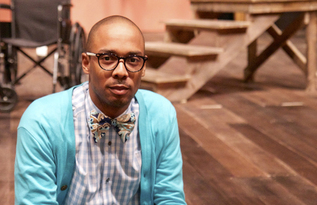 Isaiah Matthew Wooden is a director-dramaturg and Ph.D. Candidate in Theater and Performance Studies at Stanford University. His critical writing has appeared in academic journals such as Callaloo, Southern Studies, Theatre Journal, and Yale’s Theater and on popular sites such as The Huffington Post, The Feminist Wire, and NewBlackMan (in Exile), among others. Isaiah received his Bachelor’s degree in Government from Georgetown University, where, from 2005-2008, he served as an adjunct faculty member and the Artistic Advisor to the Black Theatre Ensemble. An active theater practitioner, Isaiah’s recent directing credits include: Wit by Margaret Edson; A Raisin in the Sun by Lorraine Hansberry; Fabulation, or the Re-Education of Undine by Lynn Nottage; The Gospel at Colonus by Lee Breuer and Bob Telson; Bulrusher by Eisa Davis; No Child… by Nilaja Sun; Dead Man’s Cell Phone by Sarah Ruhl; and, Beyond My Circle. A recipient of the 2014-2015 Ford Foundation Dissertation Fellowship, Isaiah is currently a Guest Artist in Theater and Performance Studies at Georgetown University.  On Thursday April 10th, I'll be participating in The Drama of DNA workshop co-hosted by the National Human Genome Research Institute of the National Institutes of Health and the Smithsonian Associates. "The purpose of this workshop is to generate dialogue about the intersection of science and the theatrical arts among participants with interest and expertise in science, medicine, bioethics, policy, education and the theatrical arts. The workshop will also seek to stimulate a community of playwrights and theatre professionals interested in engaging with scientists to encourage public discourse on issues related to biomedical research and genomics." said Karen Rothenberg, J.D., M.P.A. Senior Advisor on Genomics and Society to the Director, National Human Genome Research Institute I’ll be joined by D.C. area playwrights Renee Calarco, Joshua Ford, D.W. Gregory, Ron Kampeas, David Robinson, Ari Roth, John Strand, Gwydion Suilebhan, Richard Washer, Irene Wurtzel, and Laura Zam. Here's the agenda: Panel 1: Uncovering the Drama in Science Moderated by Karen Rothenberg with panelists: Dorothy Fortenberry, Lisa Loomer, Cassandra Medley, Ari Roth, Anna Ziegler. This panel will explore the interest of playwrights and theatre professionals in genomics, the process of writing in this area, and the challenges involved in creating and producing theatre related to genomics. Panel 2: Real‐life Drama and the Future of Genomics Moderated by Lawrence Brody with panelists: James Evans, William Gahl, Sara Hull, Philip Shaw. This panel will focus on the drama involved in the clinical and research use of genomics, including discussion of case studies and emerging trends in genomics. Discussion: Fostering a Dialogue between the Arts and Sciences Moderated by Vence Bonham, this open discussion will address ways to encourage the greater interaction between the arts and sciences and the use of theatrical arts as a means of promoting public discourse related to scientific. The Drama of DNA: Genomics in Performance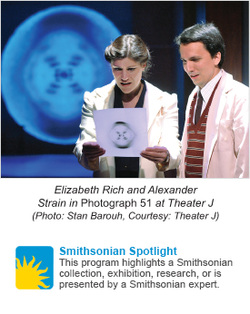 Later that evening from 7:00pm to 8:30pm, there will be a special program entitled, “The Drama of DNA: Genomics on Stage,” at the Smithsonian’s Dillon Ripley Center. Featuring excerpts from four contemporary playwrights dealing with genomic themes, this performance is open to the public and part of the ongoing educational outreach for the “Genome: Unlocking Life’s Code” exhibit at the Museum of Natural History. Click here to purchase your tickets. Uncovering the human genome more than a decade ago led to a range of questions about the complexities, realities, and implications of what this information holds. Several contemporary playwrights have used theatre to examine the ethical, legal, and social issues that genomics introduced into our lives, as well as to stimulate conversations about biomedical research. Join playwrights Dorothy Fortenberry (Good Egg), Lisa Loomer (Distracted), Cassandra Medley (Relativity), and Anna Ziegler (Photograph 51) as they discuss why and how they transformed complex topics rooted in genetics—including issues of identity, the power of genetic information, and the impact of health decisions on family dynamics—into compelling theater. Staged readings of scenes from their plays are presented by Ari Roth, artistic director of Washington's Theater J, and directed by Shirley Serotsky, associate artistic director of the company, where Photograph 51 was produced in 2011. The program is moderated by Karen Rothenberg, senior advisor to the National Human Genome Research Institute Director on Genomics and Society, the Marjorie Cook Professor of Law at the University of Maryland, and co-author of the forthcoming book, The Drama of DNA. She and the playwrights are joined by James Evans, Bryson Distinguished Professor of Genetics and Medicine at the University of North Carolina at Chapel Hill’s School of Medicine and editor-in-chief of Genetics in Medicine, for a conversation on how the artistic and scientific communities can create dialog around genomics and biomedical research. Synopsis of the Plays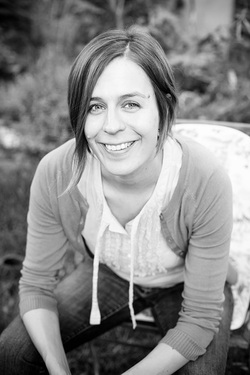 Dorothy Fortenberry, The Good Egg For as long as she can remember, Meg has been taking care of her younger brother Matt – through their childhoods, after their parents died, and especially after his diagnosis of bipolar disorder. Now in their twenties, Meg and Matt live together in Washington, DC, where she’s a Congressional researcher, and he’s a freelance web designer. She’s organized, he’s chaotic. She’s tidy, he’s creative. And she’s getting pregnant – with the help of a sperm donor and IVF. The play takes place on the night before her in vitro embryos undergo genetic testing, a procedure known as Preimplantation Genetic Diagnosis or PGD. Matt's discovery that Meg plans to screen her embryos for bipolar disorder sets off a cavalcade of decisions and revelations, and neither sibling will ever be the same. Over the course of the play, the action switches from their apartment to Meg’s womb to Matt’s brain and back, as they struggle with their individual desires and shared need for family. As the night wears on and Matt’s medication wears off, both of them are pushed irrevocably to the limits of unconditional love. 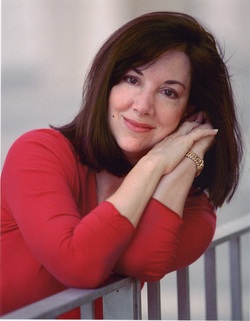 Lisa Loomer, Distracted What’s going on with nine year old Jesse? He can’t sit still, he curses, he raps, you can’t get him into—or out of—pajamas. His teachers think it’s ADD. Dad says, “He’s just a boy!” And Mama’s on a quest for answers. Is it “dysfuncton” or “difference?” And what’s ADD in an ADD world? She consults a psychologist, a homeopath, an environmental physical, a shrink. She talks to neighbors—whose kids have their own diagnoses. A psychiatrist prescribes Ritalin. Throughout, Jesse is an offstage voice, becoming more and more desperate. And will his parents’ marriage survive the quest for a diagnosis? Everyone is distracted‐‐including an actor who can’t stay in character. DISTRACTED is a look at a modern family and an epidemic dilemma: Are we so tuned into our 27/7 info‐rich world that we’ve tuned out what really matters? 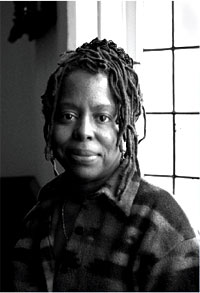 Cassandra Medley, Relativity Kalima, a young, ambitious, up and coming Bio‐geneticist has a beloved mother, Claire, who is celebrated within several small African‐American intellectual circles as a “Melanin Scientist.” Claire is a leading proponent of the belief that “people of color of physically, mentally, emotionally superior to others because of the supposed larger concentration of melanin in their skin. Circumstances force the Kalima to have to decide whether to publicly denouncer her own beloved mother’s lifetime career, and save her own professional reputation, or to hold fast to her mother’s approval, and emotionally sustaining love. A play about melanin, DNA, and family. 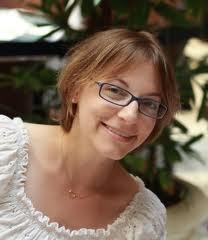 Anna Ziegler, Photograph 51 James Watson and Francis Crick received the Nobel Prize for their work modeling the DNA molecule. But did they steal data from a female colleague and claim credit for themselves? Based on a true story, the provocative Photograph 51 explores sexism, ethics, and scientific collaboration through the recounting of how passionate biophysicist Rosalind Franklin provided the key breakthrough leading to the DNA discovery. |
My BlogI'm a playwright, dramaturg, and teaching artist. It is here where you'll find my queries and musings on life, theater and the world. My posts advocate for diversity, inclusion, and equity in the American Theatre and updates on my own work. Please enjoy!
Categories
All
Archives
June 2020
Reading List
|
